M’sian companies, here’s how you can get global market access through MDEC’s DEX CONNEX
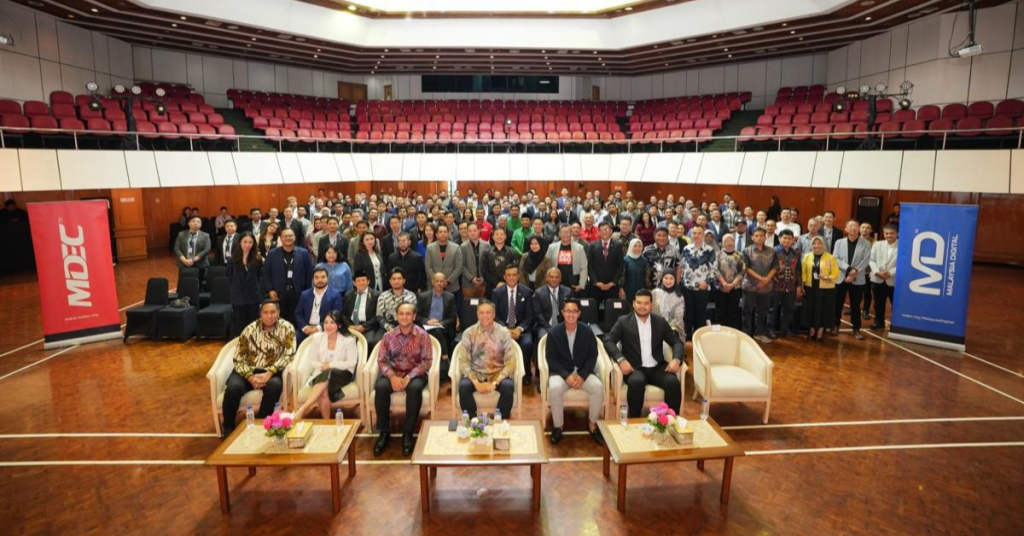
[This is a sponsored article with Malaysia Digital Economy Corporation (MDEC).]
One common thing we’ve noticed seasoned, true blue entrepreneurs advise budding business leaders in Malaysia is not to pigeonhole themselves.
Instead of focusing on our country, local businesses should cast their net wider and focus on dominating the regional market.
In fact, having a wider market reach has pushed Kuala Lumpur to become one of the world’s top 20 emerging startup ecosystems, according to the Startup Genome 2025 report.
Accessing foreign markets can be tricky, though. That’s why, for years now, Malaysia Digital Economy Corporation (MDEC) has been working to help Malaysian companies gain this access and expand their footprint to other countries.
Specifically, through its initiative called the Digital Export (DEX) CONNEX programmes.
It’s all about building connections
DEX CONNEX is a platform designed to engage, connect, and showcase Malaysian tech companies through MDEC’s Business Support Ecosystem partners in each market.
First and foremost, the primary objective is to facilitate strategic partnerships. From there, market expansion and export opportunities are within reach. DEX CONNEX also emphasises networking, which could serve to drive innovation and allow businesses to share knowledge and skills.
To do this, MDEC taps into a robust regional network of partners. These partners encompass a diverse range of stakeholders, including channel partners, government agencies, associations, corporates, and more.
It’s essentially everybody you would want on your side as you expand your business into a new territory.
Next stop, Thailand and Vietnam
Earlier this year, MDEC’s market access programme has already facilitated two trips abroad—first to the Philippines, then to Indonesia (which is its largest to date).
The visit to the Philippines brought Malaysian delegates to the Microsoft Philippines office and also involved a Business Matching activity, amongst other great opportunities.
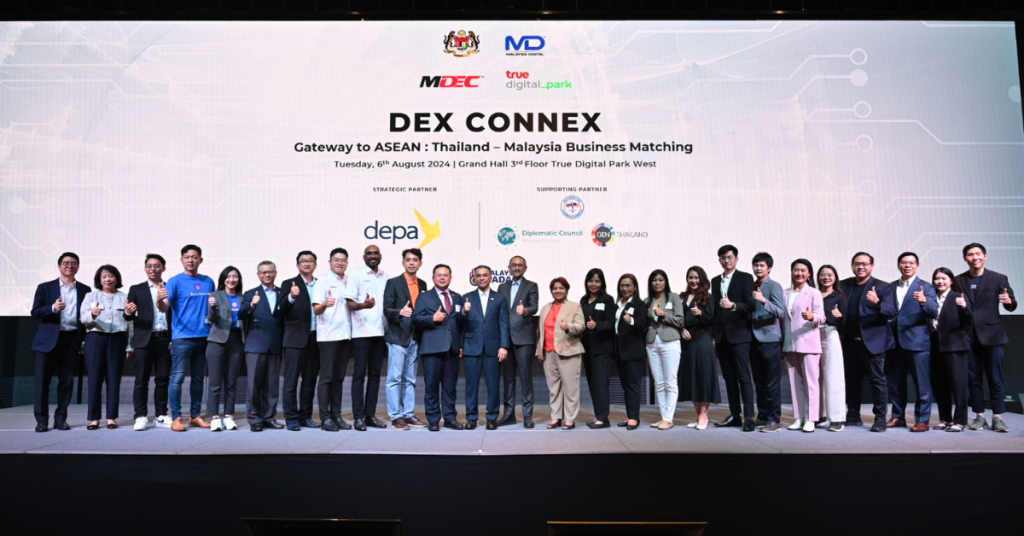
The latest visit to Indonesia was remarkably successful. MDEC saw 83 Malaysian tech firms ink 26 MoUs in the country, generating RM450 million in digital exports.
But it doesn’t stop there. The DEX CONNEX programme is setting sail for Thailand (August 4 to 6) and Vietnam (August 21 to 22) too.
Gaining market access in these notable countries is crucial for Malaysia. Helping our local companies grow will trickle into other aspects of our nation’s fabric, such as nurturing our talent, attracting investments, driving innovation, and even contributing to taxes.
In other words, MDEC opening the doors for Malaysian companies to gain access isn’t just to benefit individual businesses, it will strengthen Malaysia’s overall ecosystem.
Get global today
By now, you might be wondering how you can join this illustrious programme.
Well, DEX CONNEX is open to all Malaysian tech companies. And guess what? No participation fees are required!
The cost from the flight and accommodation will need to be borne by the companies, but this is a fantastic chance for Malaysian tech startups to familiarise themselves with our neighbouring markets.
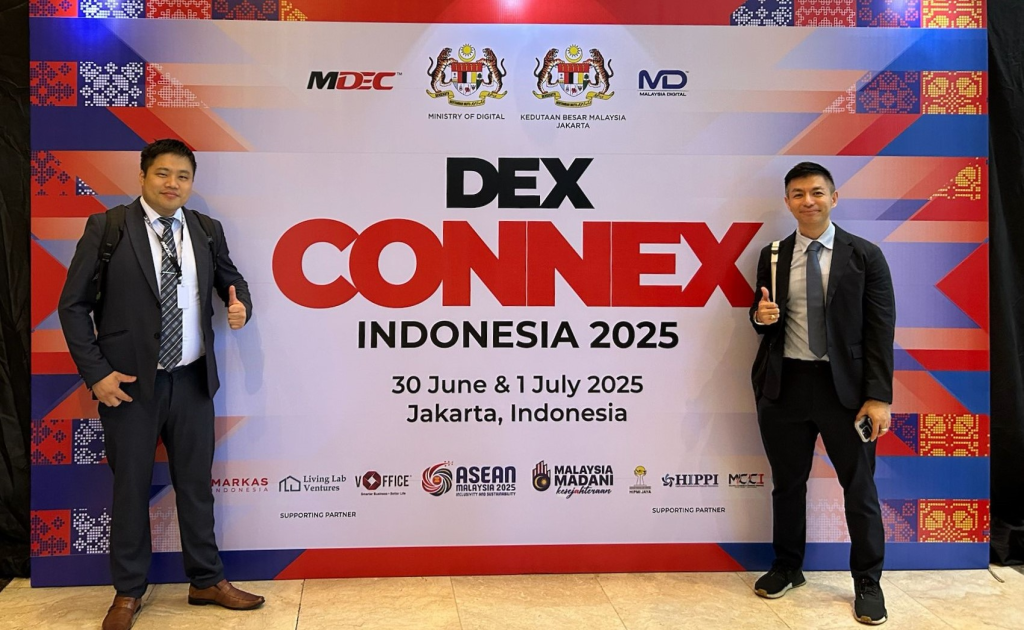
After all, you shouldn’t let yourself be limited by Malaysia’s 30+ million population size—embarking on this market access journey will serve to increase your reach and potential stakeholders. With Malaysia being smack in the middle of ASEAN, this already sets local companies up for great regional success.
If you’re interested in either DEX CONNEX Thailand or DEX CONNEX Vietnam, registrations are still open. Applications are open for the Thailand programme until July 25, while the Vietnam trip will close on August 11.
You can get more information and sign up on MDEC’s website—just make sure to do it before the deadline.
From KL to the world
As Malaysian tech companies expand regionally through programmes like DEX CONNEX, they are also preparing to showcase their innovations on the global stage at Smart City Expo Kuala Lumpur (SCEKL).
Happening September 17-19, 2025, this event is hosted by the Ministry of Digital and co-organised by MDEC and Digital Nasional Berhad (DNB).
SCEKL is the Southeast Asian edition of a leading urban innovation event, the Smart City Expo World Congress brought by Fira Barcelona.
This year, SCEKL is themed “AI Cities: Shaping Our Digital Future,” and will bring together global thought leaders and innovators to explore how digital technologies and AI are transforming the way we live, work, and connect in our cities.
The expo will feature notable changemakers, including keynote speaker Dr. David Hanson, the visionary behind the renowned Sophia the Robot and founder of Hanson Robotics. Sophia the Robot will also make a special appearance at the event.
Spotlighting Malaysia’s digital capabilities to international stakeholders, SCEKL is a strategic platform for export-ready solutions to gain visibility, attract partnerships, and strengthen regional presence—further cementing Malaysia’s position as a digital leader in Southeast Asia.
- Learn more about Malaysia Digital Economy Corporation (MDEC) here.
- For more about SCEKL 2025, please visit www.smartcityexpokl.com
- Read other articles we’ve written about MDEC here
Featured Image Credit: MDEC
Meet 5 M’sian founders who made it & are now helping to grow the next gen of startups

[This is a sponsored article with MDEC.]
Malaysia’s tech scene has seen notable growth, establishing itself as a significant hub in Southeast Asia. In fact, StartupBlink reported that Kuala Lumpur is ranked as the third-best startup city in the region.
One might say that a key factor in this rise is the success of accelerators and incubators in the country. Local tech leaders don’t just stop at achieving remarkable milestones either—they’re also reinvesting their knowledge, resources, and success back into the ecosystem.
In collaboration with the Malaysia Digital Economy Corporation (MDEC), we’ve compiled a non-exhaustive list of prominent Malaysia Digital (MD) status companies that are actively contributing to the growth of the next generation of scaleups and talents in Malaysia.
Growing businesses and industries
1. SkyeChip
Founded in 2019, SkyeChip is a design company started by SK Fong and Teh Chee Hak. The duo are industry veterans with over 20 years of experience in notable companies such as Intel, Altera, and Broadcom. Together, the founders have filed more than 40 patents.
The firm specialises in Intellectual Property (IP) and Integrated Circuit (IC) solutions for use in artificial intelligence and high-performance computing applications.
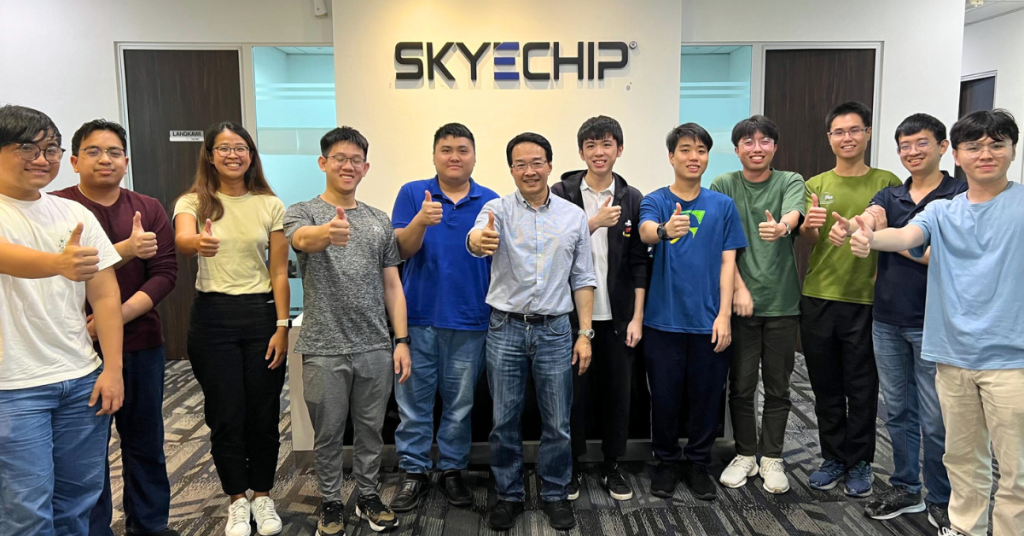
With a vision to position Malaysia as a global leader in IC design, SkyeChip collaborates with universities and provides students with hands-on experience through real-world projects. This is to ensure graduates are well equipped for employment with SkyeChip.
For example, its internship programme and Final Year Project (FYP) sponsorships nurture creativity in students to solve practical problems. SkyeChip has invested over RM300,000 to empower over 100 students at local universities, as well as supported over 90 students under the SkyeChip Graduate Associate Program.
Beyond that, the founders are Industry Advisory Panel (IAP) members for Universiti Teknologi Malaysia (UTM) and Universiti Malaysia Perlis (UniMAP) respectively. They actively contribute their expertise to bridge the gap between academia and industry, ensuring that university curricula stays relevant with the ever-evolving industry.
“Through our collaborations with universities and investments in talent development, we aim to create a vibrant ecosystem where students are not only skilled, but also inspired to drive innovation in the tech semiconductor industry,” shared SK Fong, SkyeChip’s CEO.
2. ViTrox Corporation Berhad
ViTrox Corporation Berhad (ViTrox), a Penang-based semiconductor manufacturer has grown into a global leader in automated vision inspection systems.
Established in 2000, ViTrox went public in 2004. The company exports their goods and services worldwide and has over 65 sales channel partners around the globe.
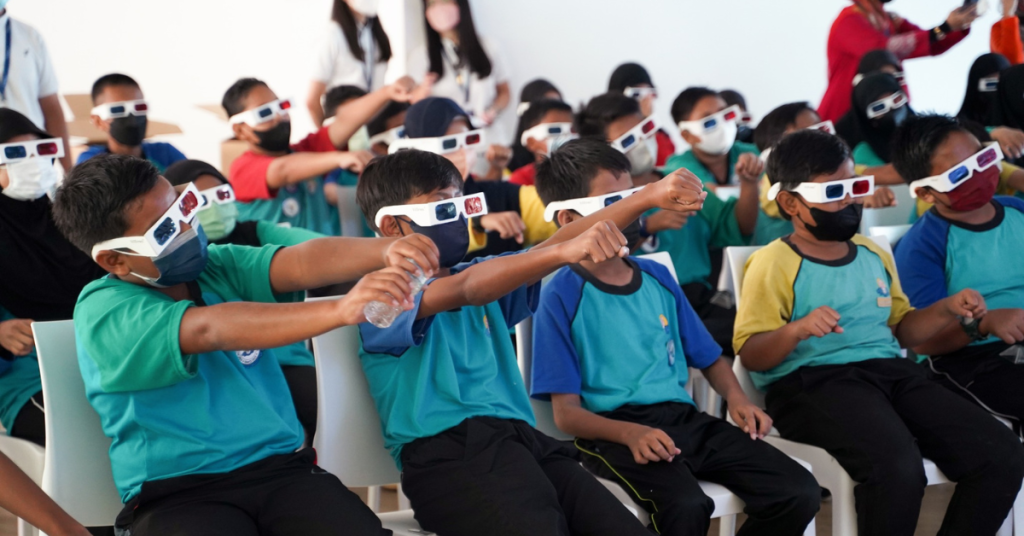
Their journey reflects the potential of Malaysia’s tech industry on the international stage.
ViTrox’s success isn’t just measured by its business achievements; the company is committed to fostering innovation within the ecosystem.
The company’s three co-founders have teamed up with Southern Capital Group to launch Cambrian Fund, a venture capital fund aimed at strengthening Malaysia’s tech ecosystem.
The fund focuses on early-stage tech companies with founders who demonstrate strong vision, the right mindset, and exceptional execution skills.
Additionally, the ViTrox Academy was established in 2020 to provide students with technical training programmes and soft skills training, ensuring that the future workforce is well-equipped to meet industry demands.
In January 2023, ViTrox Academy launched ViTrox College which runs Diploma programmes in Electrical and Electronic Engineering, as well as Mechatronics Engineering, bridging the gap between academia and industry.
3. Oppstar Berhad
Founded in 2014 by three IC design industry experts—Ng Meng Thai, Cheah Hun Wah and Tan Chun Chiat—Oppstar Berhad (Oppstar) has emerged as a key player in the semiconductor space.
Having listed on Bursa Malaysia’s ACE Market in 2023, Oppstar designs chips that play a role in digitalisation technologies in industries including telecommunication, consumer electronics, industrial electronics, and automotive.
Much like ViTrox, the company is fostering the continuation and growth of Malaysia’s semiconductor innovation talent pool.
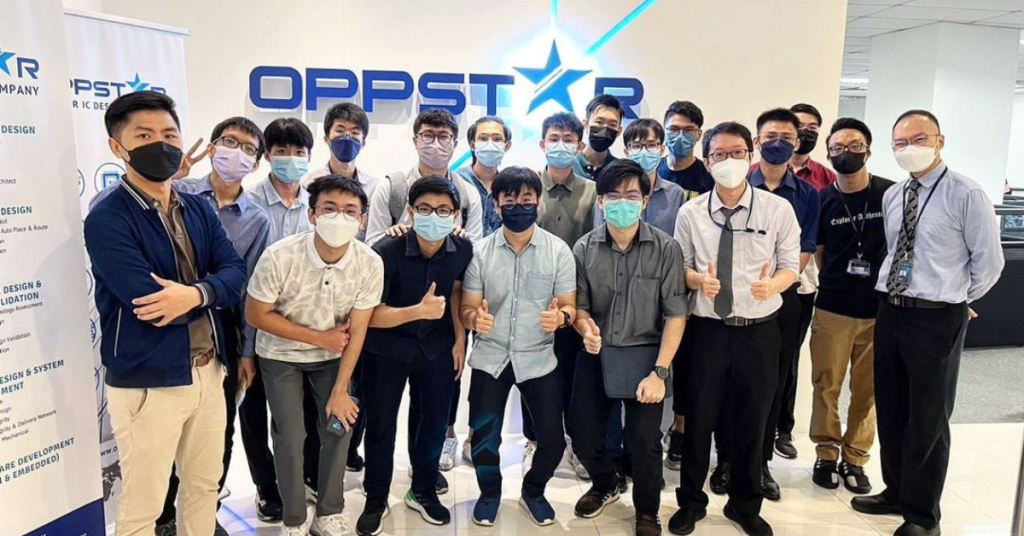
This can be seen through Oppstar’s internship programme, providing university students with hands-on experience in IC design.
Over the past two financial years, they’ve provided internships to over 105 students, with 46 of them transitioning to full-time design engineers at Oppstar, the team shared. These interns are offered competitive remuneration packages, typically exceeding RM4,000, with a focus on both professional and academic performance, Oppstar’s team shared.
Additionally, Oppstar has partnered with Universiti Sains Malaysia (USM) to establish a dedicated IC design lab at the School of Electrical and Electronic Engineering, ensuring students have the tools and resources to succeed.
The company has invested over RM1 million in the lab, mainly for design software subscriptions essential for training. This initiative underscores Oppstar’s commitment to cultivating the next generation of design engineers, with future plans for upgrades and collaborations in the works.
4. CARSOME
Malaysia’s first unicorn, CARSOME, has evolved over the last nine years into one of Southeast Asia’s largest integrated car ecommerce platforms. With operations in Malaysia, Singapore, Thailand, Indonesia, and the Philippines, it has won accolades, including PIKOM’s 2024 Tech Entrepreneur Unicorn Icon Award.
From a startup with five employees selling approximately 30 cars in its first month, CARSOME has grown into a regional powerhouse of 3,000 strong, selling more than 100,000 cars per annum, with more than US$1 billion in revenue.
This year, the startup announced its most successful quarter to-date for Q2 2024, with EBITDA more than tripling, building on the profitable momentum first seen in December 2023.
Eric Cheng, the driving force behind CARSOME’s growth, emphasised that maintaining the company’s focus on profitability while addressing real customer problems is his top priority.

And he’s not just keeping all this expertise to himself. Eric is also an angel investor and advisor, sharing his expertise with new startups to help them navigate entrepreneurial challenges.
His collaboration with Sunway Group to establish the CARSOME Mobility Lab accelerator programme in 2022 highlights his support for new ventures.
CARSOME was also an early supporter of the Sunway Education Group’s 42KL initiative, providing financial support since its inception in 2021. To date, 500 students have benefited from free programming education through the 42KL initiative, CARSOME’s team shared.
The CARSOME management team also works with the government to provide mentorship and guidance for the startup ecosystem.
For example, CARSOME leaders have been appointed as mentors for the Selangor Accelerator Program (SAP) and Selangor E-Commerce Xccelerator Programme by the Selangor Information Technology & Digital Economy Corporation (Sidec).
Additionally, CARSOME Academy helps address the industry’s skilled workforce gap by offering TVET certification across various automotive skill sets.
To date, CARSOME Academy has trained 400 students, enabling them to secure roles with starting salaries ranging from RM2,000 to RM2,500, according to the team.
Moving forward, CARSOME Academy aims to enhance collaborations with industry partners, providing students with a more comprehensive, hands-on learning experience while offering partners a reliable pipeline of skilled talent.
5. Joel Neoh
Joel Neoh is a prominent entrepreneur in the tech industry.
From leading Groupon Malaysia and Fave, to becoming an investor and Managing Director of Prenetics (parent company of CircleDNA), he’s also a founding partner of First Move.

Joel’s appointment aligns with Prenetics’ efforts to “reinvent the preventive healthcare landscape” by focusing on consumer health, genetics, early cancer detection, and targeted cancer therapies.
At the same time, he’s actively paying it forward through First Move, a founder-led early-stage fund for consumer-focused startups across Southeast Asia.
The fund provides pre-seed funding of up to US$100,000 and already has a current portfolio of seven companies spanning Singapore, Malaysia, and Indonesia, including Giggly Coco, Scentses + Co, Collektr, Evolut Commerce, TjuFu, and Decube.
Part of a larger support system
The names we featured are just a handful of those supported by the MD national strategic initiative, including MDEC’s GAIN (Gateway, Amplify, Invest, Nurture) and FOX (Founders Centre of Excellence) programmes.
They aim to identify and nurture high-growth technology companies, amplifying their potential to become global ones.
These high-growth companies go on to become industry leaders; some like the highlighted ones here go on to set a precedent for how success can be used to uplift others. Their commitment to paying it forward ensures that Malaysia’s tech ecosystem will continue to grow and thrive, supporting the next generations of startups.
Also Read: 5 reasons Tokyo makes an ideal launchpad for M’sian & S’porean startups to scale globally
Featured Image Credit: Chu Jenn Weng, CEO of Vitrox / Joel Neoh, founding partner of First Move / Eric Cheng, CEO of Carsome / Ng Meng Tai, founder and Managing Director of Oppstar / SK Fong, CEO of SkyeChip
AI could bring in US$826bil globally by 2030. Here’s why M’sian startups should get on board.
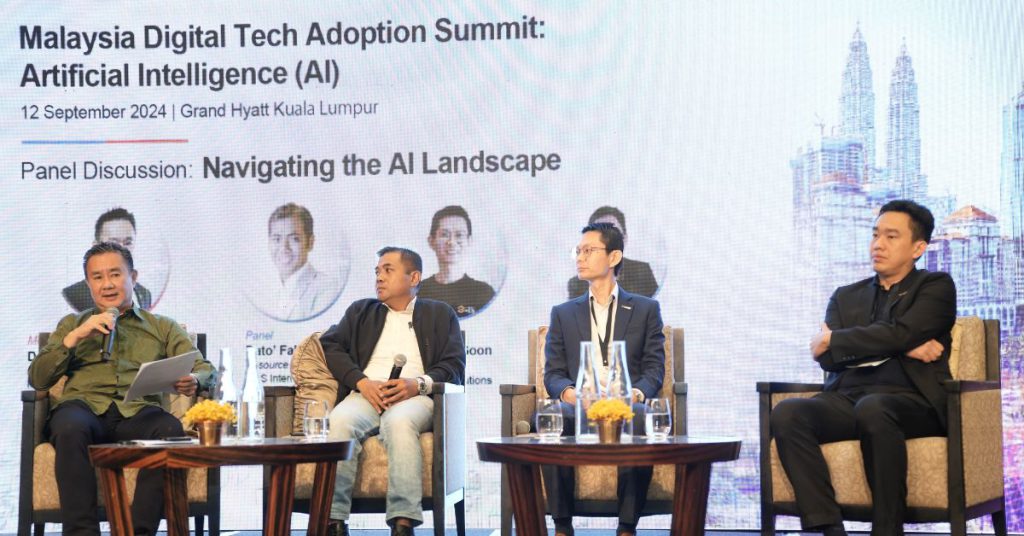
[This is a sponsored article with MDEC.]
You read the title right.
According to Statista, the market for artificial intelligence (AI) grew beyond US$184 billion in 2024, a considerable jump of nearly US$50 billion compared to 2023.
In 2030, it’s predicted that the market will “race past” US$826 billion.
This all points to there being no better time than now to tap into the market, and the good news?
Malaysia has already set the foundations for local startups to capitalise on this growth. Here are three reasons why this is an opportunity entrepreneurs wouldn’t want to miss.
1. Malaysia is a burgeoning AI hub
This year alone—and in the span of just over a month—Malaysia saw three separate billion-dollar investment plans from global tech giants to set up data centres and drive AI initiatives:
- Microsoft: US$2.2 billion
- Google: US$2 billion
- ByteDance (parent company of TikTok): US$2.1 billion
Shiny investments aside, important work is also being done at the grassroots level.
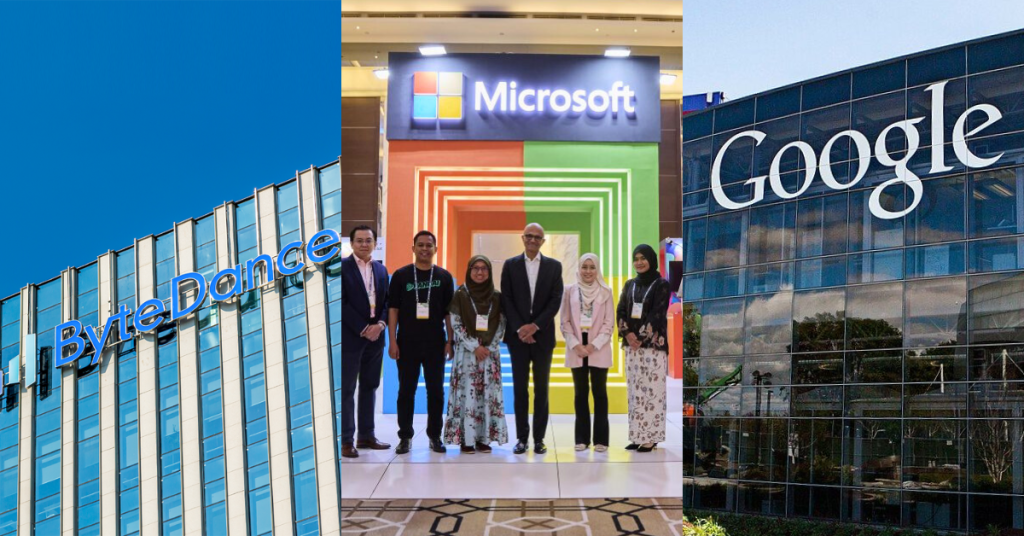
The recently-held Malaysia Digital (MD) Tech Adoption Summit: Artificial Intelligence (AI), or MDTAS: AI, by Malaysia Digital Economy Corporation (MDEC) is one such example.
Entrepreneurs, startups, industry leaders, policymakers, academics, and other key players in the digital economy came together at this event to foster cross-industry collaboration.
Breakthrough AI innovations were showcased, business connections were fostered, and the message promoting widespread adoption of AI tech across diverse sectors rang loud and clear throughout the summit.
And this is only the beginning.
MDTAS: AI is just the first in a series of high-impact events aimed at accelerating AI adoption across industries.
2. Be the catalyst for other SMEs & MSMEs to adopt AI
Malaysia is already home to innovative companies making remarkable strides in AI, YB Tuan Syed Ibrahim Syed Noh, Chairman of MDEC, shared during his speech at MDTAS: AI.
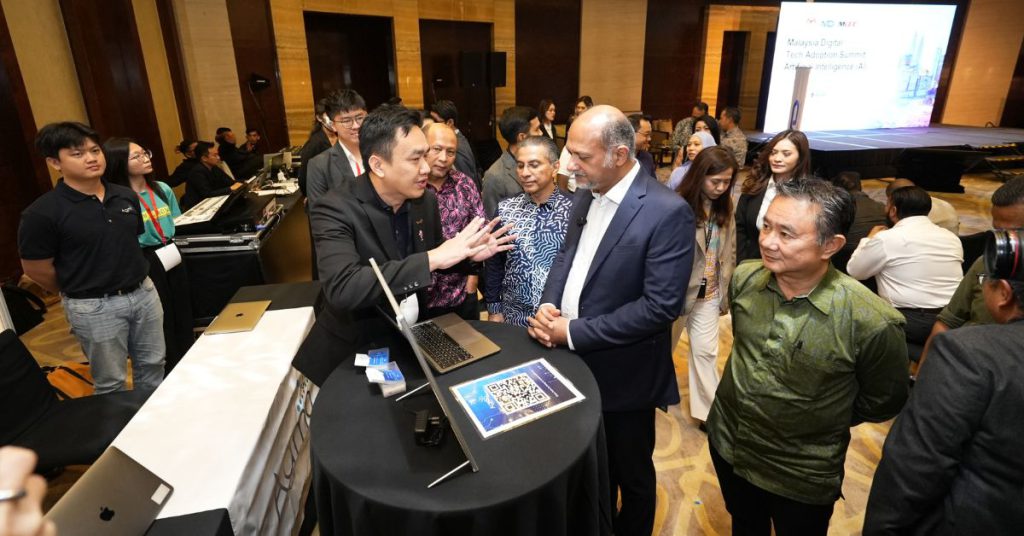
For example, we have NextMind.AI, a homegrown company whose solution allows users to create a fully functional, multilingual website in under three minutes.
This is done through its Text2Site solution, which, as its name suggests, turns a business concept into a website that’s ready for roll-out in minutes.
Supposedly, this is a process that traditionally takes over 10 working days, so a solution like this can quickly boost businesses’ online presence and global reach.
Then there’s also Peasy AI, which provides tools such as customer segmentation, sales prediction, natural language processing for chatbots, and more, enabling businesses to optimise their operations and cut costs by up to 30%.
In particular, their solution is geared towards making online-to-offline sales lead generation much easier.
The summit was a chance for these startups to showcase how their solutions have real-world applications and how they’ve impacted the way other SMEs and MSMEs do business.
3. Shape the tech in various industries
As AI adoption picks up in the region, there’s a clear advantage for first movers who can quickly offer their AI-powered solutions to SMEs and MSMEs—you could shape the tech in various industries.
We’re talking digital banking, fintech, healthcare, and so much more.
AI adoption in Malaysia is still in a nascent stage, but there’s little doubt that it’s poised to reshape business landscapes, and those who choose a “wait-and-see” approach could miss out on reaping the benefits.
-//-
Minister of Digital, YB Gobind Singh Deo, said at MDTAS: AI, “We envision a country where all layers of society can adopt technology and utilise AI.”
It’s a challenging ambition, but one that the nation isn’t backing down from realising.
Through its AI initiatives, MDEC has already successfully onboarded 140 AI solution providers into the MD AI ecosystem. Additionally, these companies have generated RM1 billion in revenue.
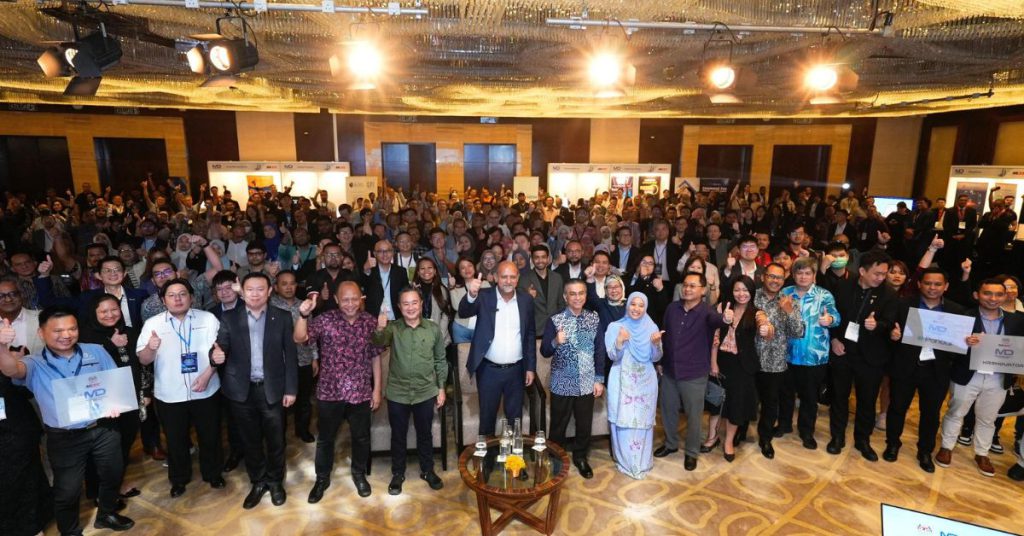
Malaysia’s ASEAN chairmanship is right around the corner, and these moves show that our nation is determined to walk the talk when it comes to bolstering AI growth.
Now, the ball is in the court of our local entrepreneurs and startups to step up and be a part of this transformative journey.
- Stay up to date with future MDEC events here.
Also Read: SDEC 2024 will explore the latest trends in semicon, AI & ecommerce, here’s how to join
Featured Image Credit: MDEC / (left to right) Ts. Datuk Fadzli Abdul Wahit, Head of Transformation, MDEC (Moderator); Dato’ Fahri Aminudi, Resource Director, GDS IDC Services; Tiensoon Law, Deputy CEO, Innov8tif; and Ts. Tan Aik Keong, CEO, Agmo Group
MDEC linked M’sian startups with Thailand’s tech scene & identified deals worth RM200M so far
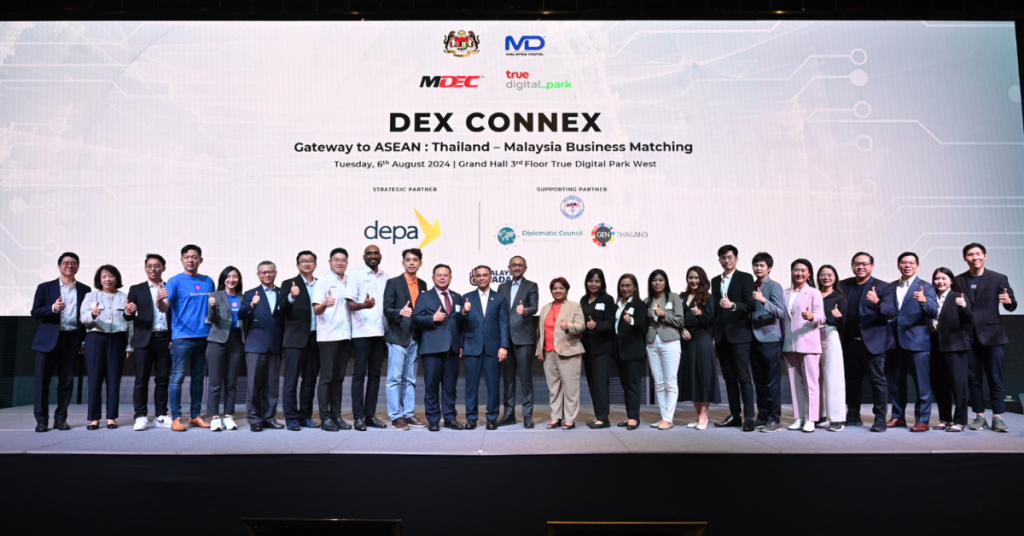
[This is a sponsored article with MDEC.]
In the dynamic landscape of Southeast Asia’s digital economy, Thailand has become a hub for tech innovation. The nation has a growing startup ecosystem, with over 13,000 startups and an influx of venture capital investment, making it a prime target for cross-border collaborations.
Recognising this, Malaysia is expanding its technological footprint through DEX Connex Thailand 2024. This initiative is part of the Malaysia Digital Economy Corporation’s (MDEC) Digital Export (DEX) facilitation programmes.
It’s part of MDEC’s GAIN (Gateway, Amplify, Invest, Nurture) initiative, which empowers high-potential Malaysian tech companies to broaden their regional and global reach.
Connecting startups across borders
DEX Connex Thailand is a platform designed to connect Malaysian tech companies with potential partners in Thailand.
This initiative aims to boost cooperation between Malaysia and Thailand and promote digital exports. It does so by providing access to a strong support network, including channel partners, government agencies, corporate associations, and venture capital firms.
In simple terms, it means that Malaysian tech companies get the connections and resources they need to grow, like introductions to key partners and opportunities for funding.

This year, DEX Connex Thailand partnered with True Digital Park, which is a key MDEC ecosystem partner in Thailand.
To further increase the network effect, MDEC also partnered with Techsauce, one of Thailand’s leading tech publishers, which hosted the Techsauce Global Summit 2024 on August 7-9 at True Digital Park, Bangkok.
DEX Connex brought together 51 Malaysian tech companies and more than 40 Thai partners. This was made possible with backing from the Malaysian Embassy in Bangkok, Malaysia External Trade Development Corporation (MATRADE), and Thailand’s Digital Economy Promotion Agency (depa).
According to MDEC, the summit attracted around 16,000 visitors from over 60 countries, centred on the theme, “The World of Tomorrow with AI”.
Fostering growth partnerships
The DEX Connex Thailand programme was packed with key events and activities that facilitated cross-border collaboration. One of the highlights was the Malaysia Diaspora Night, a networking event that brought together the Malaysian diaspora in Bangkok including Thai-based Malaysian technopreneurs, Malaysian tech companies, and Thai tech leaders to build stronger relationships.
Partners like True Digital Park and depa played a role in driving the digital economy collaboration between Malaysia and Thailand.
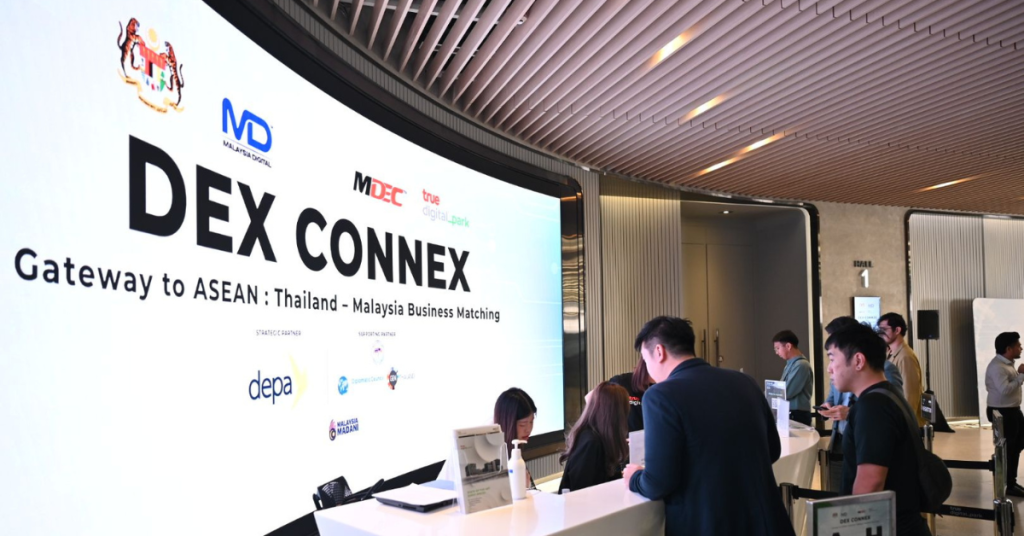
The Memorandum of Understanding (MoU) exchanged between MDEC and depa further solidified this partnership, paving the way for more local technology companies to penetrate the Thai market.
The main event at True Digital Park featured the MoU and Partnership Exchange Ceremony, where 10 agreements were signed between Malaysian and Thai companies. They include:
- CapBay (Malaysia) and SleekEV (Thailand): To promote sustainable mobility solutions through dealer financing.
- CapBay (Malaysia) and AccRevo (Thailand): To provide integrated financial solutions for SMEs.
- Tala Records (Malaysia) and Nimit Nation (Thailand): To focus on ASEAN cultural content creation.
- Intelligence Traceability (Malaysia) and S.M.S Solutions (Thailand): To enhance traceability in the food and pharmaceuticals industry.
- EasyStore Commerce (Malaysia) and Lalamove (Thailand): To improve delivery efficiency for SMEs.
- EasyStore Commerce (Malaysia) and Sunmi Technology (Thailand): To enhance payment processing for SMEs.
- CTH Commerce (Malaysia) and T.R. SIAMPUN (Thailand): To integrate PayRecon’s solutions with TRCloud’s accounting solution to support Thai SMEs.
- MODELLO Search (Malaysia) and GoFluence Thailand (Thailand): To expand operations in Thailand.
- Dattel Asia Group (Malaysia) and depa (Thailand): To support SMEs with digital marketing and AI solutions.
- ReSkills (Malaysia) and The ATTA (Thailand): To expand ReSkills’ subscriber base in Thailand through engagement with corporations, universities, and lifelong learners.
These partnerships resulted in more than RM200 million worth of engagements, highlighting the programme’s role in promoting Malaysian technology and innovation on the global stage.
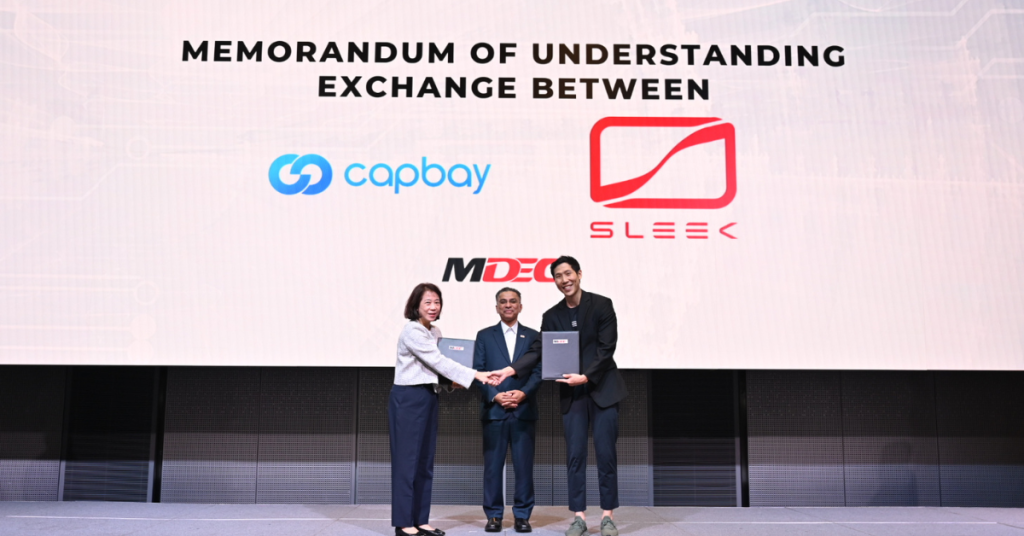
Notable Malaysian companies such as Carsome, Macrokiosk Thailand, and Ashisuto Global Technologies also participated in DEX Connex Thailand.
They too exchanged MoUs during the event, each focusing on expanding business opportunities and fostering collaboration between Malaysian and Thai tech companies.
For example, Carsome has injected a major investment to refurbish its centre in Samut Prakan to solidify its presence as a top player in Thailand’s car ecommerce market. The Malaysian unicorn also has Thai-based platforms—One2Car and Autofun Thailand—which attract millions of visitors every month.
Macrokiosk Thailand, which has been active since 2004, has formed a strong partnership with a major Thai holding company. They’re working together across mobile retail, food and beverage, asset management, and property development.
Meanwhile, Ashisuto Global Technologies has partnered with RICOH Thailand to launch DocKITA® services. They’re focusing on helping SMEs with targeted social media campaigns and exhibitions.
Setting up the next stage
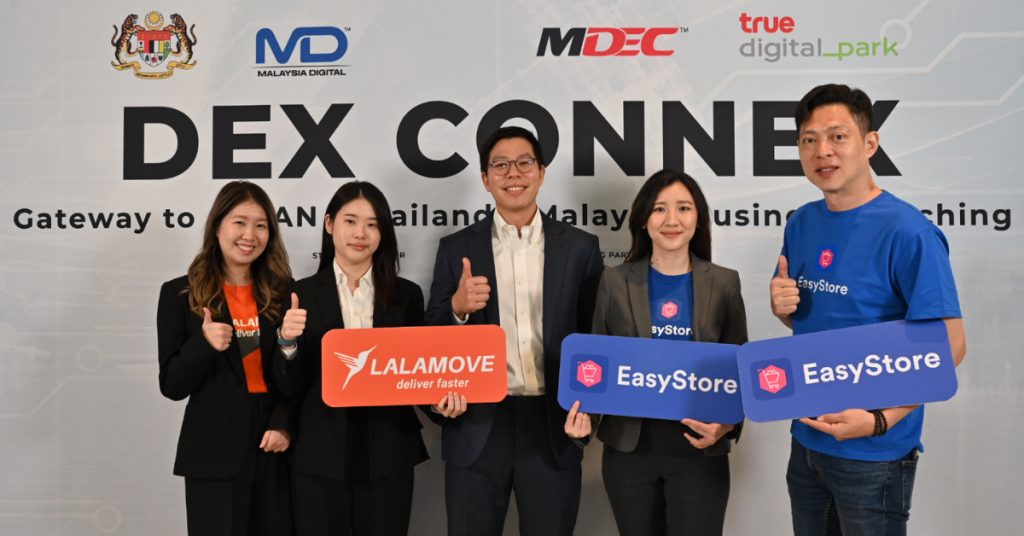
DEX Connex Thailand 2024 has played a vital role in strengthening the tech collaborations between Malaysia and Thailand, driving the digital economy across Southeast Asia.
As MDEC continues to support Malaysian tech companies in expanding their global footprint, the success of DEX Connex in Thailand sets the stage for future collaborations. MDEC is now setting up their next initiative, DEX Connex Vietnam, and they’re looking for participants.
If you’re growing a startup that’s ready for global expansion, join MDEC’s growing network by applying for Malaysia Digital (MD) status and expose your startup to the rest of SEA and beyond. Through the MD national strategic initiative, MDEC is transforming the country’s digital landscape by leveraging technology and innovation to drive sustainable economic growth
DEX Connex Vietnam will begin on November 14-15, alongside the Vietnam Innovation Summit.
Also Read: 5 scenarios in which you would appreciate having the reliable ASUS Vivobook 16 for work
Featured Image Credit: MDEC
Meet 2 companies keeping Malaysia on the world map as a leading semiconductor hub
[This is a sponsored article with MDEC.]
Did you know that Malaysia is consistently placed among the top 10 leading countries in semiconductor manufacturing? In 2023 alone, approximately 35.23 billion semiconductors were produced here.
Malaysia’s semiconductor industry is projected to continue its growth trajectory, with a compound annual growth rate (CAGR) of 7%. According to a report by Eastspring Investments and PwC Singapore, this growth is expected to propel the industry to reach an output of US$46 billion or RM212.52 billion by 2028.
More than 50 years since the first Free Trade Zone in 1972, the semiconductors sector still remains an electrified industry in Malaysia. This has put Malaysia on the global map as an electrical and electronics (E&E) and semiconductor industry powerhouse—which convinced Tesla to set up shop here.
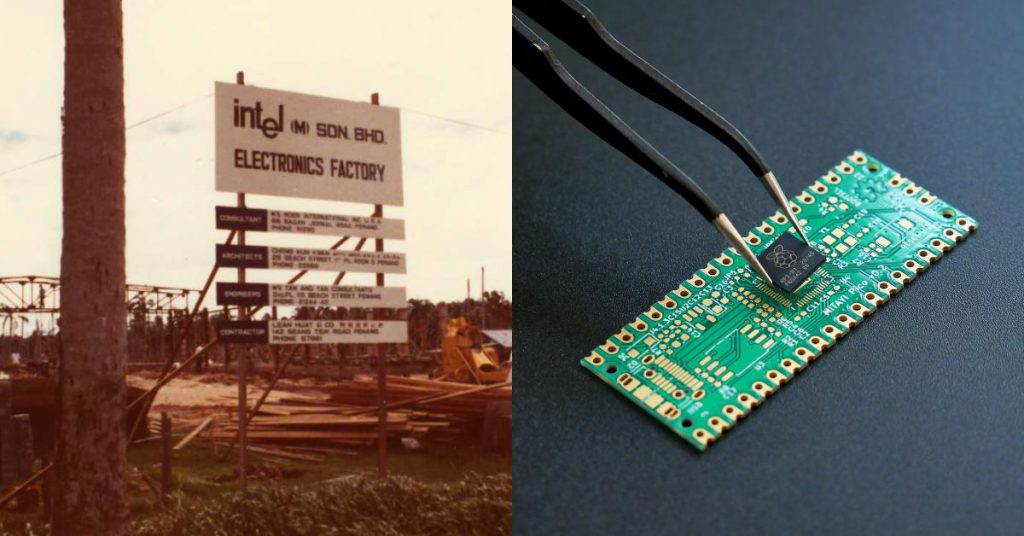
As reported by Forbes Asia in its 200 Best Under a Billion 2023, demand for semiconductors has skyrocketed in the past three years, accelerated by the adoption of AI.
In collaboration with MDEC, we had the opportunity to interview two notable founders in the industry, Dato’ Seri Tan Eng Kee, Chief Executive Officer of Greatech Technology Berhad, and Chuah Choon Bin, Executive Chairman of Pentamaster Corporation Berhad.
They shed light on the roles their respective companies have played in contributing to our current standing, and where they see the sector growing from here.
Greatech Technology Berhad (Greatech)
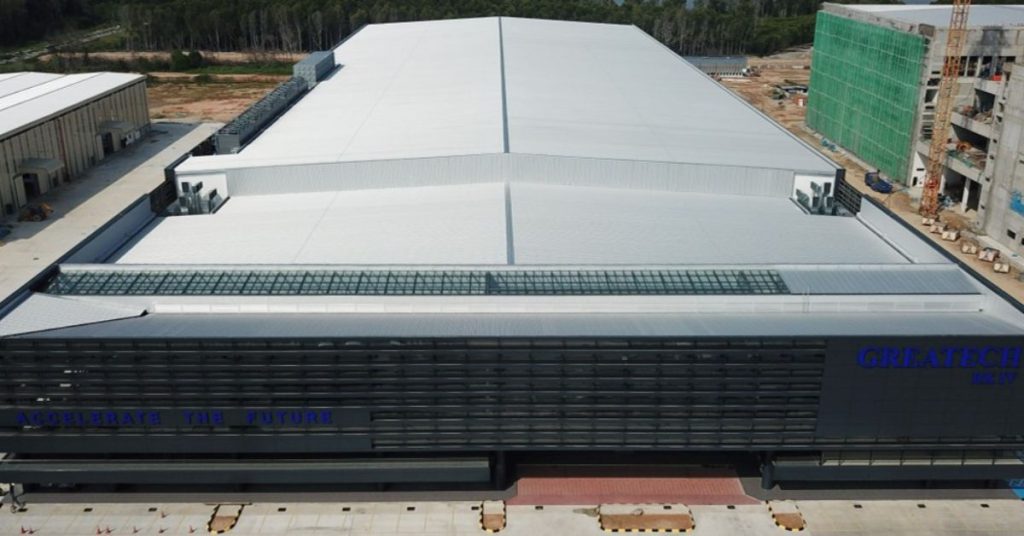
Greatech has been part of multiple Forbes Asia’s Best Under a Billion lists, recording US$116.2 million in revenue in 2022, with that figure rising to US$140.2 million in 2023.
The company’s products range from single automated equipment (SAE) to production line systems (PLS), which can be customised to the requirements of customers.
Did you know: An SAE is used in semiconductor manufacturing to perform one specific function precisely, such as ensuring accuracy and consistency in the production process.
Meanwhile, a PLS contains both hardware and software. It receives commands from either an automated system or a human operator and then sends those commands to its actuators, which make things happen.
Greatech’s history dates back to 1997 in Bayan Lepas, Penang, with Dato’ Seri EK Tan’s vision of manufacturing semi-automated and automated equipment for the consumer electronics sector. More specifically, hard disk drives.
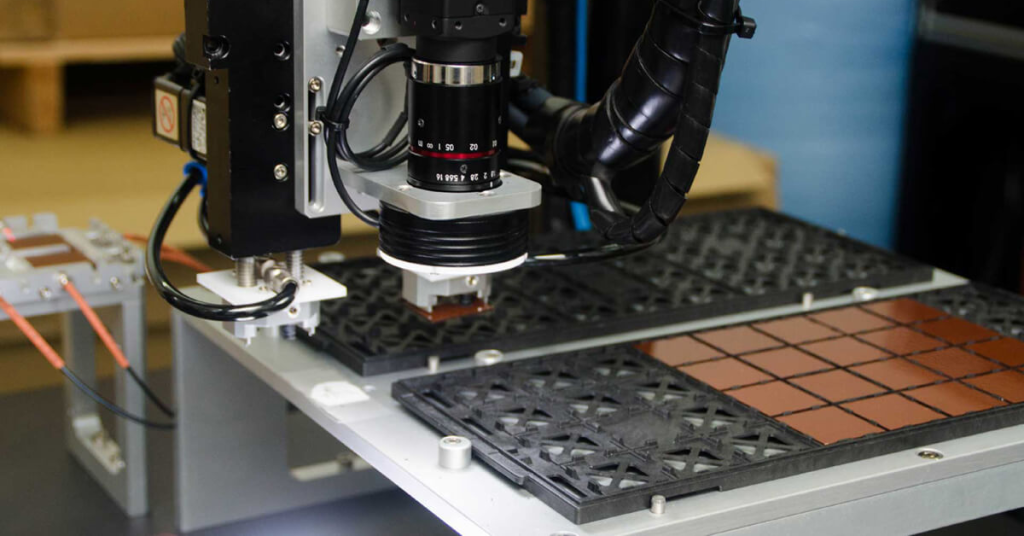
It was timely, as there were several government initiatives to foster the company’s growth. These included various tax incentives, grants, and streamlined regulatory processes to support both domestic and foreign direct investments in the country.
Malaysia’s local workforce also posed an opportunity, with its people able to offer different skills to the evolving business landscape.
Dato’ Seri EK Tan told Vulcan Post that Greatech today stands tall with a workforce of 1,500 employees, 97% of which are Malaysian. “Driving innovation forward are the 600 design engineers who continuously push the boundaries of what’s possible,” he acknowledged.
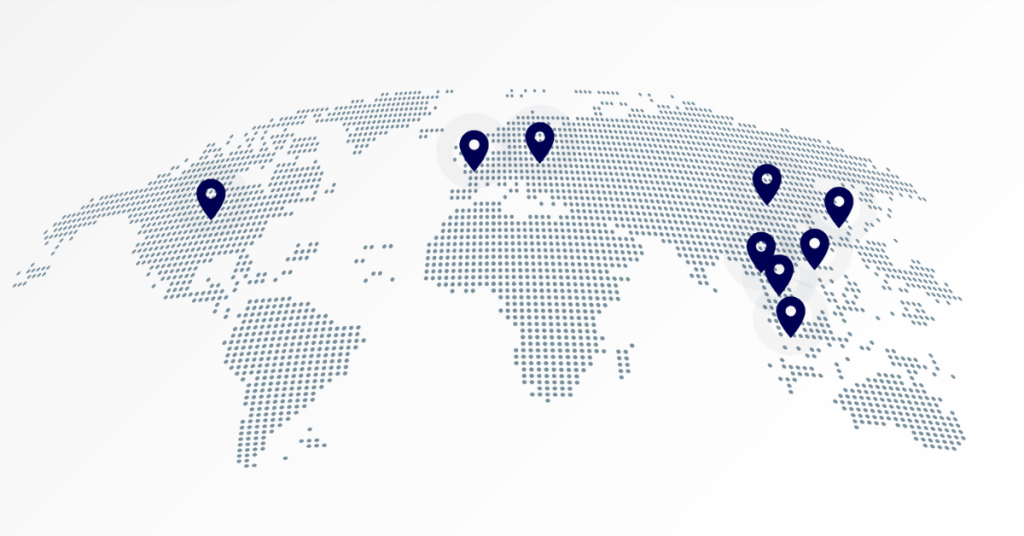
Dato’ Seri EK Tan proudly expressed that his company’s stronghold is its continuous tech innovation.
“We invest heavily in research and development (R&D) to stay ahead of the curve, consistently introducing cutting-edge solutions and advancements in factory automation,” he stated.
Not only does Greatech manufacture these solutions, but its factory’s equipment also utilises Internet of Things (IoT) devices to gather data and improve product functionality and efficiency. Additionally, the team integrates AI and machine learning algorithms to optimise their manufacturing operations.
Founder insights
- Do hard things. The ones that would challenge you to be better. You will gain experience, courage and skills to do bigger and harder things.
- There are no shortcuts to success. Weather the challenges and approach life with a sense of curiosity and always striving to learn and grow.
- Understand your products, your customers’ needs and desires. Focus on a few things and do them well.
Dato’ Seri EK Tan, Co-founder & CEO of Greatech Technology Berhad
Pentamaster Corporation Berhad (Pentamaster)
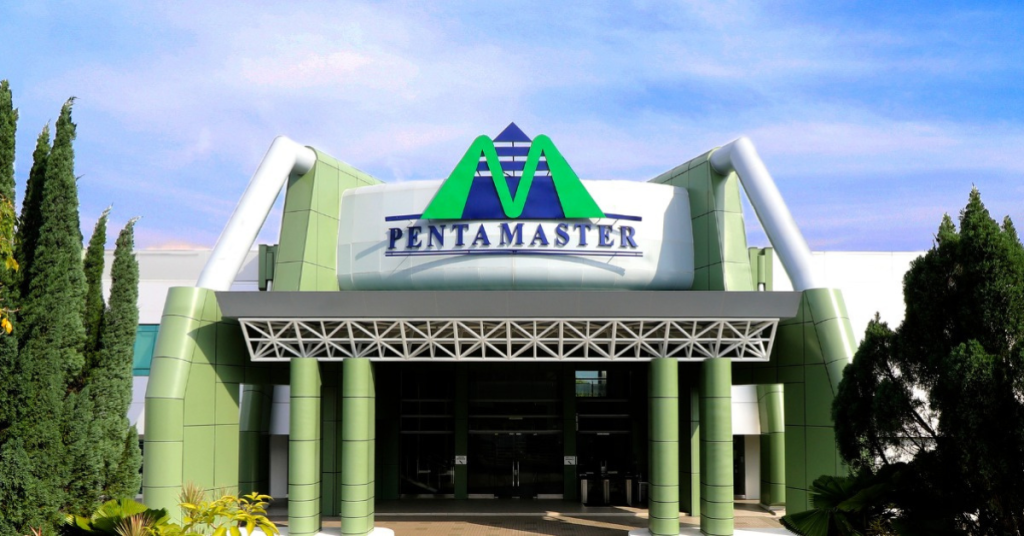
Pentamaster ranked fifth in the Forbes Asia’s Best Under A Billion 2020 list, recording US$118 million in sales, US$20 million in net income, and a market value of US$629 million.
In 1991, Chuah Choon Bin founded Pentamaster in Penang after leaving Intel, where he worked as an automation engineer alongside his brother-in-law.
“At that time, we saw great opportunity and potential in the automation sector with the mushrooming of manufacturing companies in Penang,” Chuah told Vulcan Post.
“Most of the manufacturing equipment or factory automation solutions were imported, hence there were growing needs for local automation solutions that were more cost-saving during that time.”
Pentamaster greatly benefited from the developing manufacturing scene in the 1990s, and the supportive regulatory environment for industrial automation.
In fact, Chuah cited the 1997 financial crisis as a turning point during Pentamaster’s early days due to the increased demand for automation that could better save company costs.
Since then, Pentamaster has continued to grow, diversifying its business portfolio not only in the automation manufacturing industry but also in the dynamic and ever-evolving Malaysian market.
Currently, Pentamaster has a few main business portfolios, namely automated test equipment, factory automation solutions, and medical device automation technology.
Pentamaster continuously invests in R&D to innovate automation solutions. “It’s essential to maintain a mindset of continuous improvement, always seeking to push beyond current boundaries, and embracing the challenges inherent in innovation,” Chuah believes.
Founder insights
I firmly believe that cultivating a determined mindset is essential for success in the entrepreneurial journey, a principle that applies to all entrepreneurs. When you establish a clear vision of your goals, coupled with unwavering dedication and perseverance, you pave the way for significant breakthroughs.
As an entrepreneur, envisioning the future of your startup is paramount. Beyond its inception, assembling a solid core team becomes crucial for sustaining and propelling growth to new heights. Your core team serves as the cornerstone for achieving substantial expansion.
Chuah Choon Bin, Executive Chairman of Pentamaster Corporation Berhad
Growing in the automation era
With companies worldwide shifting to adopt automation for enhanced efficiency and cost optimisation, both Greatech and Pentamaster appear well-positioned to capitalise on this trend.
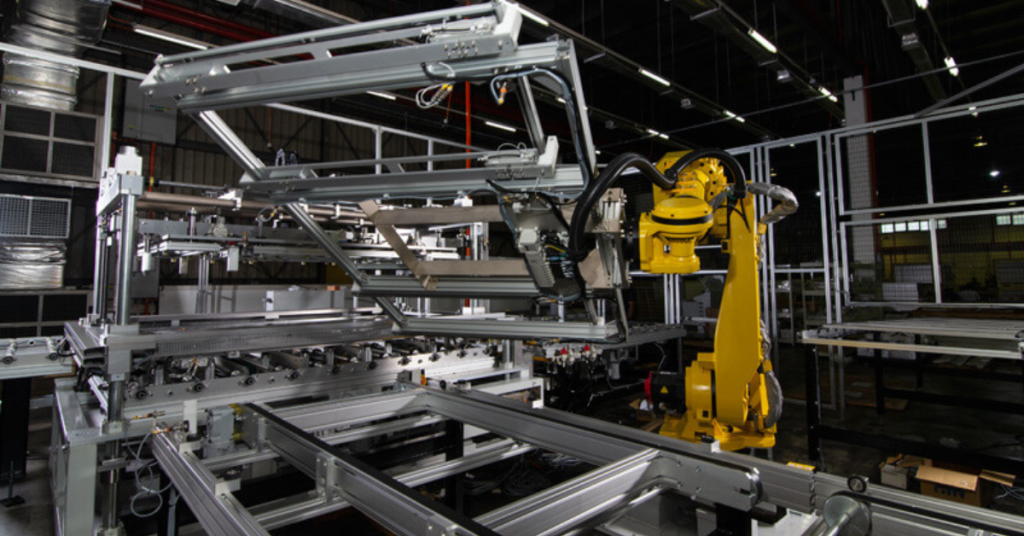
This is backed by Prime Minister Datuk Seri Anwar Ibrahim’s visit to Greatech’s Penang factory in February 2024.
There, they highlighted that Greatech produced important machines to manufacture high-tech products such as electric vehicle (EV) batteries, solar panels, and AI boards for top global tech companies.
Ultimately, Dato’ Seri EK Tan stated that Malaysia’s strong foothold in the E&E industry provides a valuable foundation for the automation sector, which Chuah acknowledged too.
Greatech and Pentamaster are just two examples of companies under MDEC’s Digital Exports Division (DEX), supporting and enabling companies to expand deeper into regional and global markets.
DEX is part of the GAIN (Gateway, Amplification, Investment, and Nurture) programme, which aims to enhance trade opportunities for local tech companies on a global scale.
MDEC facilitates this by collaborating extensively with the Malaysia External Trade Development Corporation (MATRADE) and the Ministry of Foreign Affairs via the Malaysian embassies, which you can read about here.
One example of such networking programmes can be seen through the upcoming SEMICON Southeast Asia (SEMICON SEA), happening at MITEC, Kuala Lumpur on May 28-30, 2024.
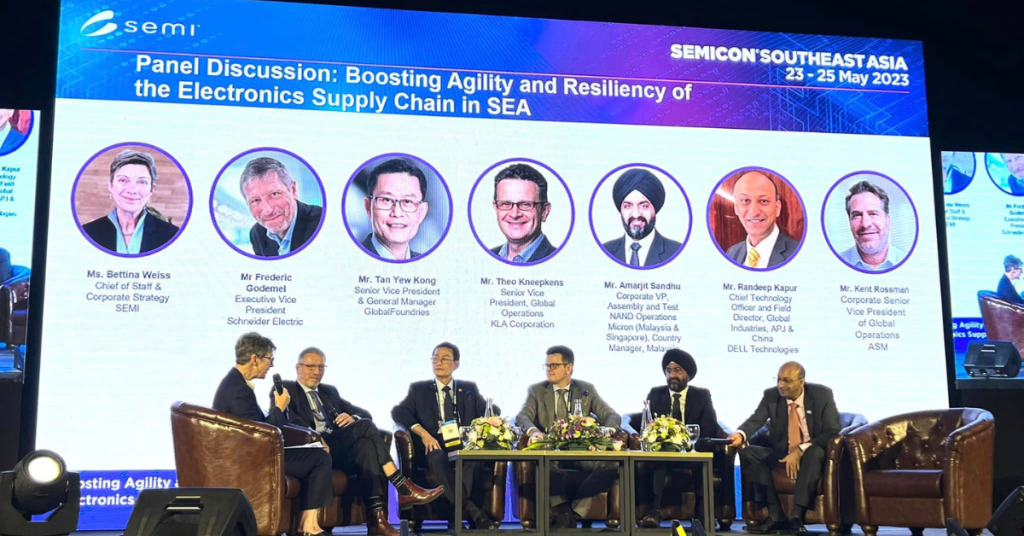
The exhibition is where decision-makers in the E&E industry will be connected to share about and demonstrate their tech advancements around Southeast Asia.
This is crucial for the nation, as global companies serve as the backbone of a vibrant economy, catalysing innovation, generating employment, and nurturing talent to grow Malaysia’s business ecosystem.
Also Read: Malaysia’s quest for 5 unicorns by 2025 is now in the hands of MDEC’s game plan
Featured Image Credit: Malaysia Digital Economy Corporation (MDEC) hosted a luncheon attended by the Minister of Digital, YB Tuan Gobind Singh Deo alongside MDEC Digital Export’s GAIN (Gateway, Amplification, Investment and Nurture) programme portfolio companies
Malaysia’s quest for 5 unicorns by 2025 is now in the hands of MDEC’s game plan
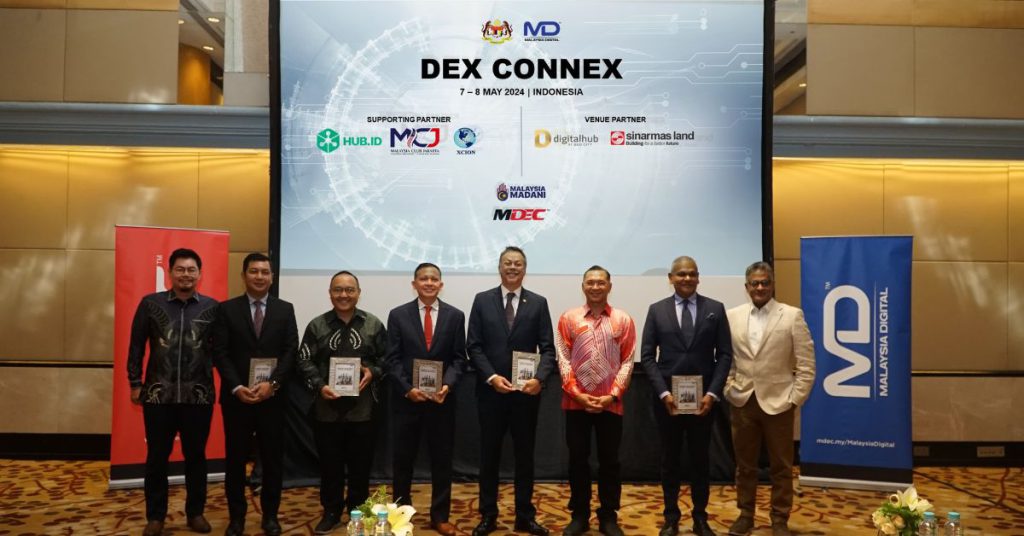
[This is a sponsored article with MDEC.]
It’s been known that Malaysia has set a goal to identify five unicorns by 2025, which was announced in 2021, in line with the Malaysia Digital Economy Blueprint or MyDIGITAL.
In a promising turn of events, the nation witnessed the rise of Carsome announced as the first unicorn within the same year.
Establishing unicorns requires meticulous planning and sustained efforts. With less than two years to achieve this ambitious goal, Malaysia Digital Economy Corporation (MDEC), under the Ministry of Digital, is actively laying the groundwork to ensure this becomes a reality.
The drive to achieve this comes from the top with MDEC CEO, Ts. Mahadhir Aziz.
He emphasised, “Through the Malaysia Digital (MD) national strategic initiative, our aim is to revolutionise Malaysia’s digital capabilities, harness technology and innovation to fuel sustainable economic growth, catalyse digital adoption across industries, and firmly establish Malaysia as the digital hub of ASEAN.”
MDEC assumes an active role in spearheading initiatives that can champion the support of high-growth startups, forging strategic partnerships, and implementing pioneering programmes.
This concerted effort creates an environment conducive for businesses to expand their digital exports, aimed at propelling Malaysia’s economic growth to new heights. Guided by the MD vision, MDEC has rolled out several strategies to do so.
Among them is the Founders Centre of Excellence (FOX), which is dedicated to cultivating high-potential startups. It will focus on equipping these companies with the tools and knowledge they need to scale globally and achieve technological innovation.
Getting the home base right
The FOX programme aims to identify and nurture high-growth technology companies, amplifying their potential to become global tech companies. By fostering a robust support network and providing targeted resources, FOX helps these organisations solidify their business fundamentals and strategic capabilities.

Currently, there are at least 35 Malaysian-based companies under the initiative, with a few showing strong unicorn potential. MDEC is keeping their names under wraps, but it is suggested that among them consist of leading companies in fintech, proptech, and recommerce verticals.
According to MDEC, these companies under FOX were chosen based on their business model’s scalability, revenue curve, and having a minimum 20% three-year compound annual growth rate (CAGR).
Within the FOX programme, one key focus area is the refinement of companies’ customer acquisition strategies. The programme will emphasise interest in models that provide stickiness, aiming for reduced churn rates and minimised acquisition expenses.
MDEC stated that the combined valuation of the top 10 startups under the FOX portfolio of 35 companies is estimated to be US$4 billion.
While each of these startups is still on its journey to reach a valuation of US$1 billion, it is crucial to recognise that the true value of a business extends beyond mere numbers.
What determines the long-term success and market resilience of a company is its underlying fundamentals, and its ability to innovate and adapt.
While the FOX programme is designed to accelerate the growth and valuation of the participating startups, MDEC will ensure that these companies hold strong business fundamentals and are strategically positioned for scaling up.
Ultimately, this is in light of the startups’ attainment of IPO and unicorn status.
For instance, participants in the FOX programme can gain mentorship access from industry leaders, who are specialised in training companies in key business areas.
FOX’s participants will also be exposed to networking opportunities with potential investors and partners, which are invaluable resources as they prepare for future milestones.
This is important, because while rapid company growth may seem impressive, one observation stands out: tech companies often struggle to establish essential internal structures amidst their swift expansion. It is a trend that MDEC has observed over its 28 operational years.
MDEC believes that by avoiding pitfalls like hasty reorganisation or restructuring, which can derail a company’s progress, MDEC FOX can help ensure that these startups not only grow in valuation but also strengthen their operational health. This positioning sets them up for enduring success.
Companies participating in the FOX initiative have the opportunity to access a broad range of consulting and advisory services from MDEC’s partnered firms such as Ernst & Young (EY), Klynveld Peat Marwick Goerdeler (KPMG), Korn Ferry, and Brand Soul.
This way, MDEC can ensure that startups receive tailored support, enhancing their strategic capabilities and growth potential.
The consulting companies will advise startups on areas such as talent management, organisational structure, branding, and sustainable business growth strategies.
Exposing them to the world
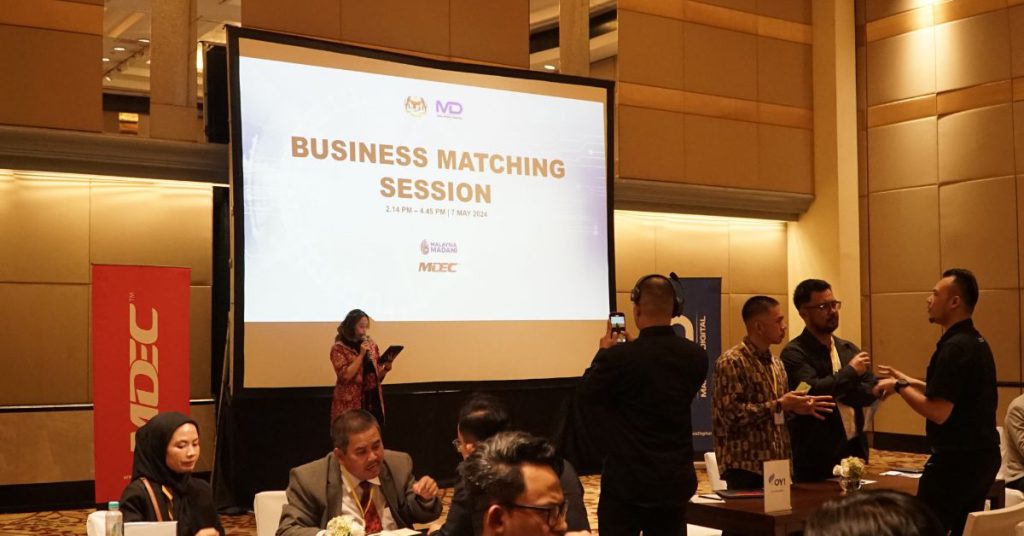
Additionally, the high-growth tech startups will also be put through networking and business matching opportunities via DEX CONNEX.
DEX CONNEX is a platform initiated by the Digital Exports Division (DEX) of MDEC to expand the revenue footprint of Malaysian tech companies into regional and global markets.
MDEC collaborates extensively with the Malaysia External Trade Development Corporation (MATRADE) and the Ministry of Foreign Affairs via the various Malaysian Embassies to enhance trade opportunities for local tech companies on a global scale.
This effort is bolstered by close partnerships with Malaysian embassies around the region. It includes the engagement of ambassadors, high commissioners, and trade commissioners.
Key international collaborations include associations from Thailand, Australia, Japan, Philippines, Vietnam, Indonesia, and Taiwan.
Additionally, MDEC actively collaborates with Malaysian business chambers in various countries to further strengthen and expand the network for Malaysian tech enterprises. It aims to foster robust global connections that facilitate their international growth and visibility.
This initiative is crucial for the nation, as global companies drive innovation, provide jobs, nurture talent, attract investment, contribute taxes, and strengthen the overall ecosystem.
But are unicorns still worth chasing?
There has been plenty of discourse in the startup ecosystem criticising the unicorn agenda, as it promotes heightened valuations from venture capitals, and the companies themselves take a back seat in attaining profitability.
Hence, why is MDEC so fixated on growing unicorns?
MDEC acknowledged that the ecosystem’s concerns are valid, as we have all seen the fallout from unicorns in other countries when valuations are pushed beyond realistic limits, without supporting fundamentals.
Investors have become savvier about investing in startups with greater sustainability in the long run. Ultimately, business fundamentals are crucial, especially in a challenging economic climate.
This potential underscores the critical role of investors who are equipped and ready to support these ventures. Programmes like FOX are instrumental in preparing these startups, making them viable candidates for substantial investments.
The value of pursuing unicorns extends beyond their financial worth, according to MDEC.
As beacons of success, unicorns serve as lighthouses within the tech ecosystem, inspiring other entrepreneurs to elevate their ambitions. The success stories of these unicorns play a crucial role in galvanising the entire startup ecosystem, making it more robust and resilient.
MDEC’s FOX programme not only accelerates the journey towards such milestones but also cultivates well-rounded companies with strong fundamentals, enriching the ecosystem’s resilience.
MDEC prioritises the sustainability of businesses over rapid expansion, and that is exactly what the FOX and DEX agendas aim to achieve.
- MDEC offers various programmes for MD status companies. Apply for Malaysia Digital status here.
- Read other articles we’ve written about unicorns here.
Also Read: Meet 2 companies keeping Malaysia on the world map as a leading semiconductor hub
Featured Image Credit: MDEC
MDEC’s IdeaKita programme aims to foster a new generation of tech startups, here’s how
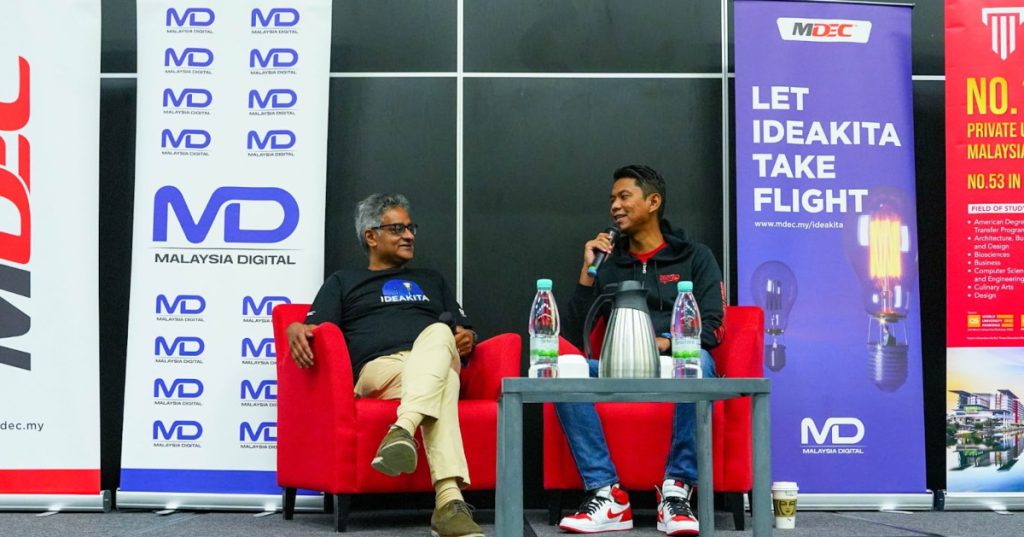
[This is a sponsored article with MDEC.]
MDEC is no stranger when it comes to organising various programmes for startups and entrepreneurs.
They have been at the forefront of several successful programmes, including Founders Grindstone, Malaysia Digital Hub, and Malaysia Tech Entrepreneur Programme, just to name a few.
For this year, MDEC has revealed a new programme called IdeaKita that focuses on helping new entrepreneurs ideate solutions to address current challenges and help increase contribution from the digital economy.
Here’s what it entails.
What can MDEC’s IdeaKita do for entrepreneurs?
Since this IdeaKita programme will focus mostly on coming up with tech solutions, the programme is supporting the development of new technologies under MDEC’s Malaysia Digital 9 key promoted sectors:
- Digital Trade
- Digital Agriculture
- Digital Services
- Digital Cities
- Digital Health
- Digital Finance
- Digital Content
- Digital Tourism
- Islamic Digital Economy
Who will this programme be suitable for?
IdeaKita is open to individuals ranging from experienced founders and serial entrepreneurs who are looking to validate new business ideas.
But that’s not all, it’s also open to new graduates and entrepreneurs who have fresh ideas but need guidance on how to start a tech business.

Programmers and tech developers are welcome to join, too, as they can lend their expertise in software and tech development, a skill set that’s crucial in today’s digital economy.
Both Malaysians and non-Malaysians who are keen on starting a tech business in Malaysia can join for free, as long as they plan to set up their business in Malaysia. However, MDEC does advise that all participants join as a team of two (minimum), or more.
As for those that are staying outside of the Klang Valley, IdeaKita partners like Digital Penang, EduCity Iskandar Johor, Sarawak Digital Economy Corporation (SDEC), TEGAS Digital Village Sarawak, and GA Space Sabah will provide venue support for those residing in these locations.
On top of that, they’ll also provide local mentors to guide participants throughout the programme.
How is the programme structured?

The programme will have two tracks that will span around 10 days throughout the month of October, 2022.
This gives entrepreneurs ample time to work on their ideas with the various workshops available, which include identifying your customer, learning the anatomy of a pitch deck, getting familiar with the art of presentation, and more.

Participants can choose between two different tracks, A, or B, which have their respective start and end dates.
Track A starts from October 3 until October 17, 2022 that’s suitable for those that want to start a tech company, but don’t have a business idea yet. Here, MDEC will guide you on the development of your idea, and how you can bring it to fruition.
If you still want to try your hand at coming up with an idea before joining the programme, MDEC has also provided various industry-validated problem statements that might interest you.
Some examples are:
- Payments: Users are required to bring several cards with them, which is inconvenient and even costly to the issuing company. Design a solution to ease access to accounts for payments without needing to carry physical cards, or one that minimises the number of cards carried.
- Banking: How can we leverage intelligent solutions like advanced analytics, machine learning, computer vision, and AI to improve the experience of banking customers (consumers and businesses)?
- Agritech: How may we develop a system for crops on monitoring moisture, controlling irrigation, improving efficiency and productivity? Crops may include fruits such as durian, sugarcane, cassava, coconut, melon, mangosteen, etc.
As for Track B, it will run from October 17 until October 31, 2022, where it will help those who already have an idea in mind but need help fleshing it out further.
What’s next after completing the programme?

Once participants have completed the programme, the support from MDEC doesn’t stop there. All participants will have the opportunity to participate in MDEC’s long-standing programmes that have successfully helped many tech startups previously. These initiatives include:
- Malaysia Digital Hub;
- Malaysia Tech Entrepreneur Programme;
- MDEC Innovation Exchange (MIX);
- Proof Of Concept (POC) acceleration;
- Funding facilitation;
- Accelerators, Pre-Accelerators, and Hackathons.
If you’re keen to participate in this programme, you can sign up on the IdeaKita registration form before September 25, 2022. To know more about it, head over to MDEC’s IdeaKita landing page.
- Learn more about MDEC’s Malaysia Digital here.
Also Read: How this RM1,199 smart vacuum-mop fared against the clutter of our 5 fluffy pets
Featured Image Credit: MDEC
2022 is here, your business could lose out if you don’t become data-capable soon
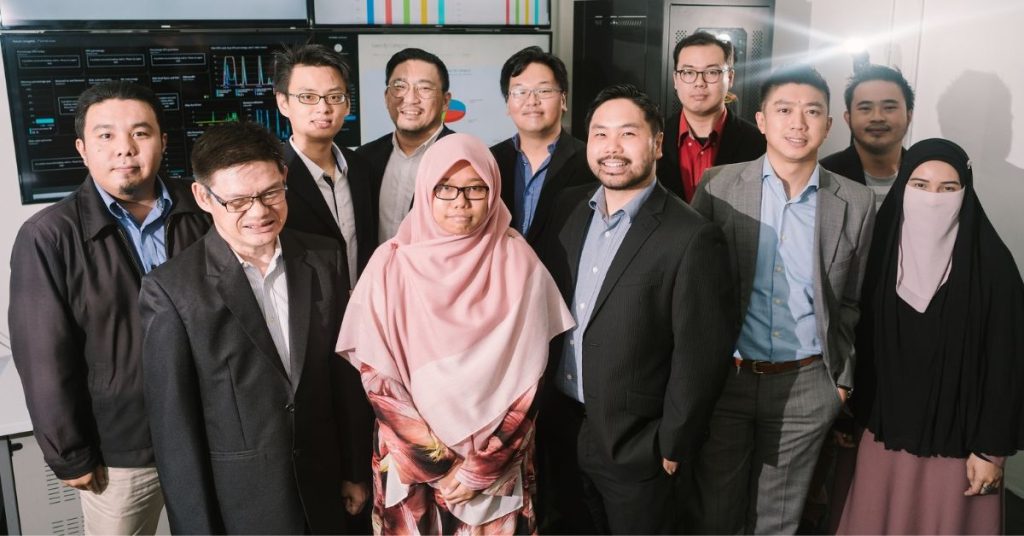
[This is a sponsored article with MDEC.]
According to the International Data Centre, Malaysia’s data-driven spending is estimated to be worth RM7.9 billion in 2025.
In order for our local enterprises to get a slice of the pie, the National Fourth Industrial Revolution (4IR) Policy dictates they must first adopt digital transformation by excelling in the 5 foundational technologies of 4IR.
Note: The 5 foundational technologies of 4IR are artificial intelligence (AI), the Internet of things (IoT), blockchain, cloud computing and big data analytics, and advanced materials and technologies.
Providing the impetus for Malaysian businesses to evolve in this aspect is MDEC and their ambition to drive greater adoption of data and AI technologies such as IoT, big data analytics and AI among local businesses.
The initiative is also in line with the Malaysia Digital Economy Blueprint (MyDIGITAL) agenda that aims to develop Malaysia into a digitally-driven nation by 2030.
Here are some case studies of companies working with the agency to help individuals or businesses gain knowledge, develop a workforce, and receive guidance around the topics of data and AI.
Using data to reduce wastage and create new products
Innergia Labs and their SYCARDA solution provide insights to businesses about their sales data as well as inventory. The company’s CEO Vernon Chua highlighted why it’s important for an establishment to keep track of these metrics during the pandemic, especially for F&B outlets.

Food wastage remains a very real problem as certain eateries don’t know the right amount of ingredients to order and keep, because they don’t know of or understand the shifting consumption patterns.
SYCARDA helps by capturing real-time transactions at point-of-sale (POS) systems and automatically aggregating sales data into reports. These let businesses monitor and manage store performances to make quick improvements.
For example, an F&B chain was able to use data pertaining to their customers’ food pairing options to develop an off-peak menu. This generated extra sales and the company made RM400,000 more in monthly revenues.
Meanwhile, a pharmacy chain utilising SYCARDA managed to quicken the process of compiling their weekly reports, using just 3 hours instead of 24.
Looking ahead to 2022: Consumer behaviours have no doubt changed dramatically since the pandemic, Vernon noted. And although this means that businesses must now have an online presence, he believes that a convergence of both offline and online businesses is the future.
When that happens, managing and monitoring a business’ performance becomes doubly difficult. Therefore, increasing the importance of data technology for companies, especially SMEs.
“These tools are there to support businesses in their effectiveness and efficiency. They are no longer the sole domain of big companies; smaller businesses can afford [to] and should implement them as well,” said Vernon.
Using data to develop AI solutions that increase task efficiency
TM Research & Development (TM R&D) is a government-approved R&D company and an innovation arm for Telekom Malaysia Berhad (TM).

The company developed its own Open Innovative Platform (OIP), a one-stop, cloud-native data-sharing platform that enables digital innovation with features like a data hub, smart service hub, IoT management, and more.
Through OIP, the SPICE.ai solution was born. It is an AI-driven customer experience platform that enables telcos to reduce user complaints, widen the usage of digital channels, and perform self-troubleshooting which result in efficient customer call handling.

During the pandemic, SPICE.ai accurately helped frontliners at call centres to enhance customer experience and cut down call handling time by one minute.
Looking ahead to 2022: CEO Dr Sharlene Thiagarajah explained, “Data and analytics are key to digital transformation efforts. Yet, fewer than 50% of documented corporate strategies mention data and analytics as components for delivering enterprise value”.
Now, things must change. She believes it’s important for businesses to adopt data and AI technologies in order to be part of the digital economy that’s expected to contribute 22.6% to Malaysia’s GDP by 2025.
Using data to drive sales while saving costs
BigLedger offers cloud-native, AI-based apps called “applets” that can handle the complexities of various business processes such as enterprise resource planning (ERP) systems, customer relationship management (CRM), POS, warehouse management, logistics, and more.
Various applets can be mixed and matched to suit the needs of a business, which means these companies don’t have to break the bank on huge complex systems.
The solution draws information from a unified data warehouse called the Operational Data Lake platform that makes information easy to access and manage remotely.

As a result, BigLedger’s clients save at least 10% of manpower costs after implementing the Operational Data Lake.
Looking ahead to 2022: BigLedger’s CEO Vincent Lee foresees highly successful enterprises adopting AI solutions in the areas of CRM, merchandising, customer service, logistics, and marketing.

2022 is the year many businesses are rebooting, consumer behaviours change, and digital transformation accelerated by at least 10 years.
To properly navigate it, Vincent believes that data technology is essential for businesses to not “fly blindly” in the aforementioned areas.
Also Read: Adobe’s only platinum partner in Malaysia: 4 things they do differently for businesses
Featured Image Credit: Innergia Labs
M’sian animation studios will be showcased at Expo 2020 Dubai, here’s why it matters

[This is a sponsored article with MDEC.]
Our local digital creative content industry is worth a lucrative RM7 billion according to Mahadhir Aziz, CEO of Malaysia Digital Economy Corporation (MDEC).
However, the country should aim bigger. The global digital content market is projected to be worth US$32 billion in 2030, and for us to get a slice of that pie our local players must shine on the international stage.
In that vein, MDEC has chosen three of our best animation studios to display their works at the upcoming Expo 2020 Dubai conference during the Malaysia Digital Economy week this January 9-15.
The objective of being there is to establish Malaysia’s presence in the global digital content space, secure up to RM300 million in trade and investment opportunities, as well as land 50 international business leads and partnership agreements.
Here are the three studios representing Malaysia in Dubai and what they do.
Editor’s Note: Information in the above paragraphs have been edited to reflect greater factual accuracy.
Early-childhood Islamic education made accessible
Durioo was co-founded by Sinan Ismail, who you may know as the former CEO of Digital Durian, the creators of the popular YouTube series Didi & Friends and Omar & Hana.
Despite Durioo being formed only in 2021, Sinan’s nearly 10 years of experience in creating animated content helps drive the new company forward.

His mission is to create educational content for children that teaches about the virtues and values of Islam.
To do that, the studio will be launching five originals in the form of Little Anmar, Mina Mila, The Zehni, and POLYTAKO and Bubu Lala. Sinan expects these content to be available within the first quarter of 2022.
They’ll be published on the company’s own subscription-based streaming service Durioo+, which is expected to launch in February 2022. In March, the studio is also putting out a games platform, aptly named Durioo Games.

All these new offerings will be shown off at Expo 2020 Dubai. Sinan believes this is the perfect opportunity for Durioo to penetrate the Middle East market and give the company some global exposure.
At the same time, he’ll be looking to land partnerships with investors, co-production partners within the region, and gain licensing deals to push Durioo+ and Durioo games in the market there.
Levelling up marketing activations with virtual technologies
If you’ve watched any online product launches during the pandemic, they would have been decked out with fancy graphics and digitally-rendered presentation spaces that look like augmented reality (AR).
These cool effects were likely the work of Zappy Production, which are known for its AR, virtual events, and interactive multimedia services.
They run a green screen studio called GreenRobot Studio that allows companies to make virtual events just as exciting as physical ones through the help of AR technologies.

Prior to the pandemic, Zappy also used projection mapping to light up the stage at the 2017 SEA Games’ closing ceremony. You can watch the presentations here to jog your memory.
Founder Kenneth Chan told Vulcan Post that with all these expertise, he hopes that Zappy’s presence in Dubai will allow him to set up a new studio there, opening up opportunities for the company to take advantage of a business events market that’s worth about RM10.43 billion.
During the expo, Zappy plans to show off their non-fungible token (NFT) projects, AR technologies, as well as virtual event platforms.
Telling local stories to an international audience
With a decade’s worth of experience, &

These works have one thing in common: they are imbued with elements of Malaysian culture and art.
By bringing these films to Expo 2020 Dubai, the studio can not only showcase their work but also present Malaysian heritage to an international audience.

Co-founder Irwan Junaidy told us that he’ll be looking to explore opportunities for collaborations to create content that melds both Middle Eastern and Malaysian cultures together.
Also during the conference, The R&D Studio will celebrate their 10th anniversary by launching the Crafting Batik Girl book, as well as a special short film that Irwan admitted is his love letter to Malaysia.
Also Read: 6 highlights from this insightful entrepreneur event, one of the first in M’sia post-COVID
Featured Image Credit: The R&D Studio
5 little known victories of the local animation and gaming industry that we should be proud of

[This is a sponsored article with MDEC.]
I like my cool action video games as much as my eye candy blockbuster animated films.
But because so much of the content I consume comes from outside Malaysia, I’ve previously assumed that our country had very little to offer in the digital content space.
Well, my assumptions were wrong.
We have plenty of success stories in our own backyard—our esports players earn big bucks at international tournaments, we have plenty of locally-made games to choose from, and award-winning animations Ejen Ali and BoBoiBoy to make us proud.
One of the agencies working to nurture the local creatives is Malaysia Digital Economy Corporation (MDEC).
To inspire more of the same, they organised the Malaysia Digital Creativity Festival 2021 (MYDCF 21), or more specifically the MYDCF Gamified Expo, which is part of the larger event featuring stage shows, esports tournaments, and more.
Throughout its month-long exhibit in November, our local digital content players shone brightly with award wins, a game launch and more. So, let’s take a look back at some notable highlights.
1. 111 school students got the chance to create their own games & animations from scratch
Like any industry, the video games and animations space rely on newer generations of talent to bring fresher ideas and skill sets.

This was reflected during the Creativity @ Schools programme and competition that took place alongside MYDCF Gamified Expo. It aimed to inspire children and teens to try their hand at animation and game development.
The programme received 111 participants consisting of primary and secondary school students who were guided in creating their own animations and games. The winning participants were rewarded for their creativity.
In the esports scene, the Junior Shoutcasting Challenge attracted over 200 school student participants. It provided not just workshops and mentoring sessions to help hone their casting skills, but also a competition for them to flaunt abilities.
Dictionary time: Shoutcasting is a form of commentary for esports matches where casters entertain and inform the audience with engaging callouts and insightful analytic views.
None did so better than a 17-year old who had the opportunity to shoutcast at a professional Mobile Legends: Bang Bang (MLBB) tournament during the festival.
His performance also earned him praise from the game’s developers Moonton.
2. Malaysia’s own MOBA premiered its first major tournament
As a seasoned gamer, I’ve poured possibly thousands of hours into multiplayer battle arena (MOBA) titles—namely MLBB and DOTA 2. Unfortunately, I’ve never played one made by Malaysians; however, that idea always seemed pretty neat.

The good thing is, now I can because local animated series Ejen Ali now has its own MOBA. The aptly-named Ejen Ali: Agents’ Arena took to MYDCF21 and had its first esports tournament, which even had a prize pool for RM10,000.
The competition garnered over 100,000 viewers across a couple of streaming platforms which is a good sign that the game is pulling in quite an audience.
3. We launched our own publishing platform that focuses on locally-made games
MYDCF Gamified Expo also played host to the SEA Game Awards that highlight our country’s standout game developers and their works.

This year, indie developers SkyFeather Games were given the Rising Star Award for their game Exist.EXE, a turn-based role-playing game with spritely 16-bit aesthetics.
Another Malaysian name DreamTree Studio won an award for Best Story Telling for their narrative-focused game DeLight: The Journey Home.
Meanwhile, MYDCF Gamified Expo also witnessed the soft launch of the Malaysian Game Store, a publishing platform that specifically doles out locally-made video games. It’s a product developed in partnership with MDEC to the business opportunities and reach of Malaysian studios.

On the animation side of things, our country also drew the attention of creative talents from across the globe, including the United States, Hong Kong, Hungary, and Brazil, through the Southeast Asia Kr8tif! Awards.
Speaking of talent, there was also a career fair during the festival with over 200 opportunities advertised by more than 50 companies within the industry.
Well-known companies such as PlayStation Studios, Bandai Namco, Streamline Studio, and Codemaster even held talks to help our youngins understand what a career in the games business looks like.
4. Creators pitched their ideas for games and animations to big companies
Ejen Ali relies on his fellow agents to beat the bad guys, and even seasoned gamers must count on their teammates to secure a win. This is no different in the digital content business.
To push Malaysia forward in this arena, collaborations among small and big industry players are a must.
Examples of this are MDEC’s alliances with international companies such as Playstation Studios, Double Eleven, and Lerian Studios, as well as local brands Kaigan Games, Animonsta, and Passion Republic.

To encourage more development in this area, MYDCF Gamified Expo hosted conferences where the likes of Sony, Warner Media, Microsoft, Monsta, and Nintendo were present to give talks.
There were even opportunities for creators to pitch their animation or game ideas with companies such as Astro, WarnerMedia, Media Prima, and BBC Studios in attendance.
5. Executed one of the largest conferences of its kind within the region with 80,000 viewers
With all these highlights to treat attendees, it’s no wonder the MYDCF Gamified Expo raked in a whopping 17,967 registered participants and had 80,000 viewers on the brand’s own streaming platform alone.
These are impressive figures considering that as separate events last year, Kr8tif! And LEVEL UP KL played host to only 1,300 participants and 50,000 attendees respectively.

According to MDEC, this year’s numbers make the festival the largest of its kind in Southeast Asia (SEA).
Things are certainly looking up for Malaysia’s games and animations industry—according to a report published by MDEC, Malaysian is the only country within SEA that has game companies that can generate over USD50 million in revenue.
On top of that, the report also says that Malaysia has the third-largest game market within the region in 2020, raking in USD786 million.
With this in mind, we’ll want more talents to further bolster the industry. The career fair we spoke about even featured notable companies Electronic Art and Bandai Namco as part of the hiring participants.
Therefore, Malaysia now has a robust ecosystem for not just individuals, but businesses to thrive in the games and animations industry.
Also Read: Adobe’s only platinum partner in Malaysia: 4 things they do differently for businesses
Join digital marketing courses by FB, Google & LinkedIn for free—certification included
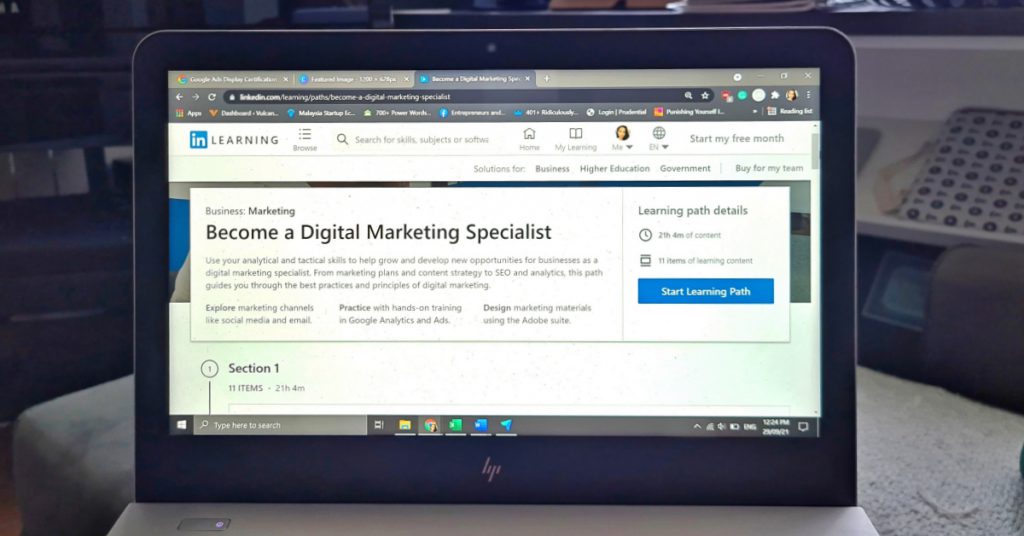
[This is a sponsored article with MDEC.]
“Going digital” is a phrase that millions of businesses have likely taken to heart over the course of the nearly 2-year pandemic.
Moving forward, it’s predicted that this trend will continue rising, and professional online networking site LinkedIn’s 2021 report on job trends in SEA reflects this. According to it, the demand for social media and digital marketing talents will be on the rise.
Some of the top titles in demand will be Social Media Manager, Digital Marketing Specialist, Social Media Marketing Specialist, Marketing Specialist, and Marketing Analyst.
In terms of skills, companies will be looking for those who understand social media marketing, copywriting, Google Analytics, lead generation, and of course, digital marketing.
For those who want a piece of the pie, there’s no better time than now to begin building your portfolio and hone your digital marketing skills. To encourage more people to take this opportunity, the Malaysia Digital Economy Corporation (MDEC) has a fitting campaign full of benefits.
Equip yourself with the skills to pay the bills
Under MDEC’s Let’s Learn Digital (LLD) campaign, participants will get free access to digital marketing courses and certification from now until October 31, 2021.
Editor’s Update 21/10/2021: The LLD campaign has been extended until December 31, 2021.
It’s part of the agency’s #mydigitalworkforce initiative, which aims to equip Malaysians with digital skills to be ready for an increasingly digitally-dependent workforce.
MDEC has partnered with Facebook, Google, and LinkedIn to offer these for free under LLD:
| Facebook (Facebook Blueprint Associate Certification) | – Digital Marketing Associate Certification |
| Google (under Google Ads Certification) | – Google Ads Display – Google Ads Search – Google Ads Measurement – Google Ads Video – Google Shopping Ads – Google Ads App |
| LinkedIn (under its Digital Marketing Learning Path) | – LinkedIn Marketing Certification (Fundamental) – LinkedIn Marketing (Marketing Strategy) – LinkedIn – Become a Digital Marketing Specialist – LinkedIn Learning – Master In-Demand Professional Soft Skills |
Some examples of what to expect are that Facebook’s course will cover foundational advertising concepts on Facebook, Instagram, and Messenger, while Google’s courses will validate your proficiency with the various Google Ads products, and LinkedIn’s Learning Paths provide you with several courses surrounding digital marketing.
Each of these courses will differ in its method of delivery and duration needed for completion. For example, Facebook’s Digital Marketing Associate Certification would take 6-8 hours to complete, each Google certification would take about 3 hours, and LinkedIn’s Digital Marketing Specialist course would take 20 hours.
As the learning materials are all readily available online, participants can learn at their own pace. Keen learners can also enrol in multiple courses and certification at the same time within the campaign period.
The LLD campaign is open to every Malaysian, and if you’re already thinking, “Sign me up!”, you can do just that here.
Get rewarded for learning and upskilling
Once you’ve completed a course, you’ll be certified by the partner platforms and will be issued an e-certificate or e-badge.
Upon completion, participants can then stand a chance to win prizes when they share their success stories by posting them on social media using the hashtag #MDECLLD.
The prizes available include Grab vouchers and exclusive merchandise by the partners.
These partners are only a few of whom MDEC plan to work with for LLD, as the current focus is on digital marketing. For other themes, they will be collaborating with other partners and you can keep a lookout for updates on MDEC’s facebook here.
- You can learn more about MDEC here, and LLD here.
- Read more about what we’ve written about MDEC here.
Also Read: Alibaba Cloud was a star player behind the scenes in this year’s Tokyo Olympics, here’s how
6 types of entrepreneurs & the talks that match them best in Malaysia Tech Month 2021

[This is sponsored content with MDEC.]
It’s no secret that entrepreneurs are looking to network and upskill the most that they can during the pandemic, with free classes, courses, and workshops galore.
While there are plenty of places local entrepreneurs can look to, MDEC is currently running Malaysia Tech Month from July 29 to August 30.
To put it simply, Malaysia Tech Month 2021 is a completely free, month-long, mega virtual event featuring digital and technology keynote speakers, workshops, discussion panels, and business-matching sessions. MTM is already happening, but worry not, there are still 2 weeks worth of events and you can also rewatch the ones you’ve missed.
And to help you out with not getting overwhelmed, we’ve identified 6 types of entrepreneurs and the conferences that would match them best in this event.
1. For the esports entrepreneur
If you’re an entrepreneur looking to venture into the esports industry be it through sponsorship, hosting tournaments, selling products, developing games, etc., the Creative Tech Summit Esports Conference is for you.
It’s a three-hour long event featuring 2-3 talks about what kinds of monetisation opportunities you can leverage in the esports industry as well as what are the risks and opportunities of investing in pro players.
Date: August 25, 2021.
Time: 2:00PM to 5:00PM.
Speaker(s): Carlos Alimurung, CEO of One Esports; Clement Hui, Director of The Pantheon; Muhammad Asrul Jalani, Head of Production from IO Esports; Mohd Hazman Bin Hassan, CEO of KITAMEN.
2. For the AI entrepreneur
Whether or not you’re an entrepreneur who wants to benefit from AIs to boost your business or run an AI-based startup, the events that might pique your interest are these back-to-back AI-centric panel discussions.
Do note that many of these events touch mostly on how to get AI working for you in e-commerce, and there will be sharings from an Amazon developer from the Netherlands on what Amazon learnt from building and scaling AI/ML (artificial intelligence/machine learning) in their business.

Should you also be interested in learning more about how you can leverage on AI to upgrade customer service experiences, you can watch the third session on the rise of conversational commerce which was recorded here.
E-commerce aside, there are more interesting AI-related talks you can access like There’s No Such Thing As Artificial Intelligence by Apple’s Siri co-creator.
Date: August 12, 2021.
Time: 9:00AM to 12:00PM for the first 3 sessions, and 4:15PM to 5:15PM for the fourth session.
Speaker(s): Rama Sridhar from Mastercard, Singapore; Ganesh Kumar Bangah from Commerce DotAsia Venture Sdn Bhd, Malaysia; Saqib Shaikh from Microsoft; Zain Suharwardy from Accenture; Brian Fernandez from Capillary Technologies; Sohan Maheshwar from Amazon Netherlands; Valerie Cheng from AiChat; and Dr Luc Julia, Apple.
Since this event has already passed, you can watch the recorded sessions here.
3. For the young entrepreneur
Now entrepreneurs come from all walks of life, and in the startup ecosystem, it’s evident that even children are starting early with their entrepreneurial ambitions.
If you’re the parent of a budding “kidpreneur”, or are simply interested in knowing more about how someone from the younger generation managed to make it big in what they do, this chit-chat session with 7-year-old Kautilya Katariya, who’s the world’s youngest computer programmer, might be someone you want to learn from.
Date: July 30, 2021.
Time: 2:00PM to 2:30PM.
Speaker(s): Kautilya Katariya.
Since this event has already passed, you can watch the recorded session here.
4. For the hiring entrepreneur
Entrepreneurs looking to monetise from job-seeking professionals or to create a more equitable hiring system, these events are catered to your niche.
The topics range from how to design a more equitable AI hiring system, to how to improve your LinkedIn presence, workplace attitude and communication, etc.
Even if you’re not a hiring entrepreneur and just a professional looking for job opportunities, Week 3 is where you can meet hiring managers from various industries like software development, data science, cybersecurity, and digital global business services.
The equitable AI hiring system discussion has already passed, so you can access the recorded event here. As for the other two events, here are the details:
Date: August 16 (for the LinkedIn one) and August 17 (for the workplace one), 2021.
Time: 3:30PM to 4:30PM (LinkedIn) and 3:00PM to 4:00PM (workplace).
Speaker(s): Ivana Bartoletti from Deloitte; Sunita Kannan from Microsoft; Dr Samara Banno from Women Leading in AI; Ryan Ng from LinkedIn; and Hanie Razaif-Bohlender from Dragonfire Corporate Solutions.
5. For aspiring techpreneurs
As this entire tech month is meant to focus more on the digital side of entrepreneurship, here are workshops for aspiring techpreneurs who are just starting out and are looking to upskill with what little resources they have.
For these entrepreneurs, there are 2 upcoming events you can look forward to which touch on how to level up your digital skills and how to monetise from digital freelancing which will be happening in Week 3.
There are also several relevant past events that you can learn from which talk about future predictions in the digital economy, how to build a culture of innovation within your own business, etc.
Date: August 16 (levelling up digital skills) and August 20 (how to monetise), 2021.
Time: 2:00PM to 3:00PM (leveling up) and 3:00PM to 4:00PM (how to monetise).
Speaker(s): Louise Leong from Facebook; Smriti Khullar from Google; Irene Ong from LinkedIn; and Nur Ashikin Halil from GLOW.
6. For the fintech entrepreneurs
Last but not least, for the fintech entrepreneurs (and yes, including you crypto geeks), there are events tailored to your community happening this month as well which includes a bootcamp and showcases that are all in Week 4.
This regulators bootcamp will feature a panel of experts from Securities Commission Malaysia, Malaysian Venture Capital and Private Equity Association, and Fintech Association of Malaysia.
As for the events, there will be sharings on how fintech organisations can build transparency and trust within the financial ecosystem, what are the obstacles with getting institutional funds onboard with cryptocurrencies, etc.
Date: August 23-24, 2021.
Time: 9:00AM to 5:00PM (first day) and 11:00AM to 4:00PM (second day).
Speaker(s): Ian Ow, Founder & CEO of Ablr; Justin Kong, Founder & CEO of Payd; Richmond Yau, COO of Versa; Syakir Hashim, Country Head of Wahed Invest (Malaysia); and Sharian, CEO and Founder of Senang Insurance.
-//-
Even if you fit none of the “types of entrepreneurs” we’ve listed above, there’s still much that you can benefit from this event.
Digitalisation is an innovation that many entrepreneurs across industries have to adopt, and there are panel discussions and talks that allow you to learn more about market trends, explore business opportunities, and potentially collaborate with investors and digital talents who are looking to network in this space.
- You can learn more about Malaysia Tech Month 2021 here.
- You can see past articles we’ve written about MDEC here.
Also Read: Calling all jobseekers: Over 100 companies are looking to fill 5,000+ vacancies this August
Featured Image Credit: Unsplash/Pexels
Calling all jobseekers: Over 100 companies are looking to fill 5,000+ vacancies this month
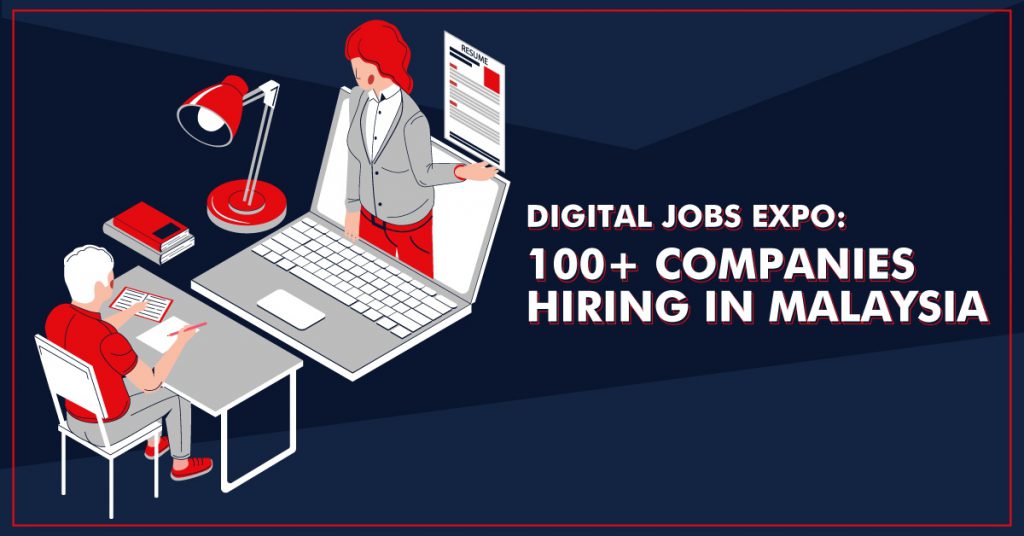
[This is sponsored content with MDEC.]
This August, MDEC (Malaysia Digital Economy Corporation) is hosting Malaysia Tech Month 2021 (MTM 2021) for the second time since 2020. The event will also mark the corporation’s 25th year as the government’s appointed agency to cultivate a digitally capable nation.
MTM featured keynotes, discussions and talks from key figures in the digital tech industry such as Tan Sri Tony Fernandes (CEO of AirAsia Group), Eric Cheng (co-founder and Group CEO of Carsome), and Professor Dr Michio Kaku (Renowned Futurist and best-selling author).
Talks aside, MTM 2021 is also home to MyDigitalWorkforce Week (MDWW), the anchor digital skills event at MTM, and tailor-made for local job seekers.
Providing upskilling opportunities for jobseekers
MDWW will have webinars and upskilling classes which runs from August 16 to 20. There will also be a Digital Jobs Expo and Satellite events, running throughout the whole event from August 16 to 30.
Editor’s Note: The MyDigitalWorkforce Week portal is now extended to September 30. You can still look and apply for jobs on the site until then.
Some of the webinars, for example Let’s Learn Digital, offer free online digital marketing courses with certification by Facebook, Google and LinkedIn. There are also classes on how they can bolster their LinkedIn presence and how they can stand out in a competitive job market.
Hiring companies will also be giving talks on their industry, so potential employees can get a better grasp of the company’s working environment, benefits and growth opportunities.
That said, the main draw of the event for job seekers will be the Digital Jobs Expo. The job expo will promote more than 5,000 jobs listed by local companies. Here are some of the companies that are hiring during MDWW:
1. Dell Technologies
Dell Technologies is one of the global technologies leaders in digital transformation, providing technology solutions, products and services to businesses worldwide. Locally, the company has established 3 sites across the country in Bukit Minyak (APCC2), Penang (SWTC) and Cyberjaya.
One of the roles they’re on the lookout for is a Senior Advisor for their Cybersecurity Penetration Testing Team in Cyberjaya. The candidate should possess at least 8+ years of Information Security experience, and 5+ years of direct experience in areas of penetration testing, exploiting development, and more.
TS Koay, the General Manager of Dell Technologies in Cyberjaya said that Dell has adopted remote working throughout the pandemic and will continue to do so in the future through its Connected Workplace programme. He hopes to see passionate candidates who can thrive and achieve career aspirations in Dell Technologies.

2. Hitachi eBworx Sdn Bhd
Hitachi eBworx is a financial solutions specialist, providing digital solutions to the financial services industry. Their client list includes Maybank, CIMB Group, and other notable banks in Malaysia. While the company was originally founded as eBworx in 1998, it was bought over by Hitachi in 2012.
The company is now present in 5 countries: Malaysia, Indonesia, China, Singapore and Thailand. Prospective employees must also be willing to travel at least regionally and accept overseas assignments.
In MDWW, they’re recruiting a Technical Lead in Java/Microservices. Once hired, you’ll be tasked to design, implement and test banking solutions for clients while leading and executing team projects.
3. Karuna (Sarawak) Sdn Bhd
Karuna is a local company providing web design and development, graphic design and software development services to companies. They’ve serviced clients from Maldives, Hong Kong and even Singapore.
Melvin Ong, the CEO of Karuna, believes new graduates are good with Javascript and Framework such as React Native, React JS and Flutter. However, they ‘lack the understanding of .NET or PHP’, which are languages widely used in the industry.
“Usually these [understanding of programming languages] comes with working experience. One of the ways to improve that is to take up an internship with an IT company that focuses on software or mobile app development,” Melvin continued.
They’re looking to hire a Full Stack Developer and your daily tasks will be to design UI for websites, develop servers and databases for clients.
4. Petronas Digital Sdn Bhd

PETRONAS Digital Sdn Bhd is the digital and IT delivery arm that enables PETRONAS to be a progressive energy and solutions partner to enrich lives for a sustainable future.
The company understands that ‘data is the new oil’ so they are heavily focusing on hiring more personnel to undergo this transition. One role that needs to be filled is a Data Scientist. Under PETRONAS, you will be designing, planning, coordinating and implementing Data Science activities that support the company’s Digital Agenda.
Phuah Aik Chong, the Head of Digital Engineering of PETRONAS Digital Sdn Bhd said “customer-centricity and sustainability are at the heart of everything we do”. They wish to hire talents that are self-driven and ultimately not afraid to take risks and to try new things in their industry.
5. Shopee Mobile Malaysia Sdn Bhd
Most of us relate Shopee to the regular 9.9, 11.11 and 12.12 sales. Shopee is also one of the companies that heavily prioritises their employee’s growth, allowing them to take on positions that can influence change within the company and digital economy even as a newcomer.
They’re currently looking for a Business Intelligence Analyst who will be tasked to develop commercial strategies and projects to help drive high-impact business changes.
As for those who are more Fintech inclined and enjoy problem solving for the team, you can consider joining their ShopeePay Project Management team. You will be working closely with different stakeholders within the company and execute the ShopeePay product roadmap in Malaysia.

-//-
If none of the companies above has roles that fit your skillset, there are 100 other companies on the site that are on the lookout for talents. Alternatively, you can join one of the upskilling sessions offered throughout the event.
- For more information on MyDigitalWorkforce Week, click here.
- MyDigitalWorkforce Week starts on August 16 and ends on August 30, 2021.
- MyDigitalWorkforce Week portal is now extended to September 30, 2021.
- Read what we’ve written about MDEC here.
Also Read: 9 facts about personal loans in M’sia you should know to borrow responsibly in a pandemic
Featured Image Credit: 123rf
What large M’sian corporations with data-driven approaches know that others may not
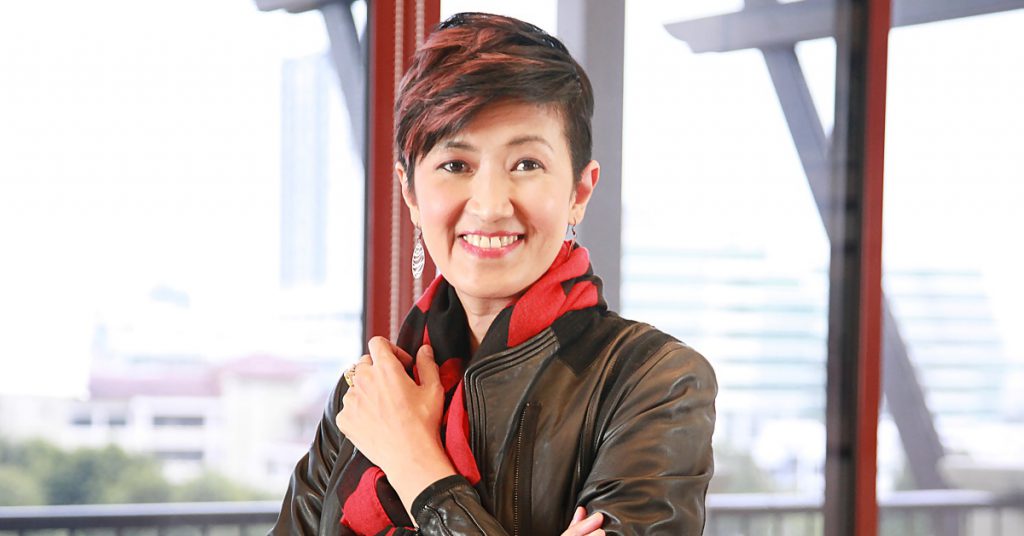
[This is a sponsored article with MDEC.]
As the country surges forward to tackle the effects of COVID-19, the government outlined a Malaysia Digital Economy Blueprint (MyDIGITAL) to transform the nation into one that is digitally capable and inclusive, to be a regional leader in digital economy.
The blueprint also calls for industry players to innovate and adopt new business models which will build a digital ecosystem, allowing society to embrace the digital economy. But to do so, companies need to understand the importance of big data.
Being data-driven is not just a technological buzzword. It is based on empirical analysis and evidence, leading to tangible results. From decreasing labour required by 75 percent to achieve the same output, to increasing customer engagement, the data-driven route has helped some of the biggest corporations in Malaysia to optimise their operations.
With the assistance of the Malaysian Digital Economy Corporation (MDEC), these corporations have successfully integrated data technology into their operations.
Improving manufacturing output through data
Hartalega is one of the world’s largest nitrile glove manufacturers. But, to get where they are today, they had to strategically invest in digital technologies.
Kuan Mun Leong, the CEO of Hartalega Holdings Bhd said that when they first started, they needed 10 employees to produce 1 million gloves a month. But with the investment they’ve made in digital capabilities, they now only need 2.5 workers to produce 1 million gloves a month.

To reach their current output, the company had to adopt tech in the workplace but he noted that it can be an exhausting and expensive process. Firstly, to improve their manufacturing capabilities, the company took a detailed look at the pain points of their employees on the production floor.
Once they understood the challenges the employees face daily, they hired a team of data analysts and developers who created an algorithm capable of detecting quality issues or production losses even before they happen. This helped the production floor to be more productive and effective.
Through that understanding of data on their processes, it allowed the company to build a manufacturing plant that is fully digital and automated. Especially with the demand for gloves tripling due to the pandemic, Hartalega can tweak their glove output to match the needs of their customers.
Build a data-driven work culture
If you’ve been property searching in Malaysia, one of the names you’d encounter is Mah Sing. The company has been in property development since 1994 and has over 52 projects under their belt across the nation.
But with ever-changing customer expectations, Mah Sing knew they had to improve themselves technologically and digitally to keep up with the demand of customers and be a mainstay in the industry.
It proved to be an uphill battle—the property industry is averse to changes as they are heavily reliant on legacy services. This was when Mah Sing understood that they have to transform their culture first before they could even focus on their customers.
The company embraced a high-performance work culture through a top-down approach, where every result and outcome is measurable. The company utilised tech to give them key metrics such as how fast tickets are resolved, how quick employees respond to customers, and even the effectiveness of their digital marketing.
Through the data they’ve collected, the company could then tweak their processes, and in doing so, provide their customers with better offerings. In an interview with MDEC, Mah Sing revealed that customer engagement has been increasing year on year, with a 75% increase in customer engagement last year.
Their understanding of their customers also led to effective marketing strategies, with 50% of their in-house sales brought in through digital marketing channels alone.
Providing customers with more value-added services
A better understanding of data can also provide a better experience for the customers. Permodalan Nasional Berhad (PNB) has over 14 million unit holder accounts under their belt, and 12.6 million of them are actively investing with PNB.
Like Mah Sing, PNB wanted to give their customers a better experience and with customer expectations evolving to demand faster, better and more digital offerings, the company underwent a data-driven change.
Through the data PNB obtained, they knew that 30% of their customers are iOS users and 70% of them are using Android devices. Their data also reveals what devices the customers use too. And this helps their in-house app developers to create an app that’ll work for the devices that their customers are using.

In terms of improving their offerings, data also allowed the company to understand and predict the customers’ actions. With data, they can provide advice to different customers at different points in life. For example, if you’re a young adult who has never invested, they’ll advise investing in fixed price products, whereas a retired investor might get a different investment approach.
They now have over 1.6 million users (12%) of their unit holders engaging digitally through their mobile app.
Helping Malaysian businesses to understand data
With all the talk on data, if you don’t have the capability or the trained personnel, you’ll be working at a loss. To help businesses understand the benefits of data, MDEC brought the Data Driven Enterprise (DDE) programme to life.
MDEC’s DDE programme aims to provide a structured and accelerated approach in assisting business enterprises to gain value from their digital transformation efforts and rapidly shift towards becoming more productive, innovative and resilient.
Recently, MDEC has launched a complimentary Data, Analytics and AI readiness assessment that will enable organisations to understand their data, analytics and AI readiness. Once the assessment is completed, the organisations will receive a personalised report that will assist them in their journey towards being 4IR ready.
Here’s what MDEC’s DDE programme offers:
- A complimentary data assessment to gauge your business’ data-driven readiness,
- 2 hours of complimentary consultation sessions with MDEC’s data & analytics experts,
- Data knowledge workshops/webinars with more than 50 data technology partners in the industry,
- Access to training, upskilling and talent facilitation,
- Access to case studies, solution-sharing and references from industry experts,
- Business facilitation, matching your business needs with MDEC’s Data Technology Partners.
The DDE programme is in line with MDEC’s vision of Malaysia 5.0, enabling a nation that is deeply integrated with tech, to provide equitable digital opportunities to the people and businesses.
- Find out more about MDEC’s DDE programme here.
- Take the complimentary data assessment here.
- Read up on what we’ve written about MDEC in the past here.
Featured Image Credit: MDEC
If you’re unemployed or a fresh grad, MDEC’s MYWiT initiative aims to get 6,000 M’sians hired

[This is a sponsored article with MDEC.]
COVID-19 has upended our ‘normal’ ways of living, changing how we spend our money and how we work. It has also affected Malaysia’s unemployment rate, which rose to 4.8% in 2020, compared to 3.3% in 2019.
As an active counter to this, MyDigitalWorkforce Work in Tech (MYWiT) aims to assist both parties in the workforce ecosystem. It will provide jobs and upskill unemployed Malaysians while supporting hiring employers through salary and training incentives.
The Goals Of MYWiT
Surina Shukri, the CEO of Malaysia Digital Economy Corporation (MDEC) believes the MYWiT initiative will spur companies to hire, upskill, and adequately compensate the Malaysian workforce while cushioning the impact of unemployment due to COVID-19.
Ultimately, the initiative will address the Malaysia Digital Economy Blueprint (MyDigital)’s goal of nurturing a strong digital economy by creating 500,000 jobs for Malaysians by 2025.
Under MYWiT, there are two separate programmes named Digital Business Services (DBS) and Digital Tech Apprenticeship (DTA). Both programmes have their own requirements and offerings.
Providing The Right Skills & Work Opportunities
Current labour requirements have taken a shift in favour of jobs that can be done remotely. If you’re a fresh graduate without the skills or the means to work remotely, you’re already starting off at a disadvantage.
The DBS programme addresses this by guiding fresh grads to gain digital knowledge and capabilities, while being employed in relevant fields. You can refer to this link for more info of job roles available under DBS.

Retrenched workers are also found to be lacking in digital capabilities in the modern workplace. DTA helps them by breathing new life into their current skillset and helping reskill themselves to get jobs under sectors such as Software Development, Data Science and Cyber Security.
Example: A software developer from the hospitality industry may be hired by a healthtech startup to develop medical software instead.
Requirements For Employees
If you’re interested in joining MYWiT either through DBS or DTA, here are some of the requirements:
- Unemployed for at least 2 months, or a fresh grad (DBS) OR unemployed or retrenched for at least two months (DTA),
- A Malaysian citizen,
- Not a current/past beneficiary of MYWiT incentives in any company,
- Not part of PenjanaKerjaya 2.0 and Penjana KPT-CAP programmes,
- Not a close family member of a director/shareholder/top management of a hiring company,
- Employment letter offer issued after the online qualifying application date.
Incentives For Prospective Employers
As for the employers who join up to MYWiT to look for potential talents, here are some of the incentives that will be reimbursed to you through the programme.
1. DBS Programme Incentive Structure
- RM9,800 to RM20,600 maximum incentive per person, depending on the salary offered (which will be reimbursed accordingly),
- Salary incentive of 40% of employee’s monthly salary for 6 months (salary range of RM2,000 to RM6,500),
- Up to RM5,000 for training per pax (in-house or through Work and Learn course on MDEC’s Digital Skills Training Directory).
2. DTA Programme Incentive Structure
- A maximum incentive of RM15,200 per pax (which will be reimbursed accordingly),
- RM1,200/month salary for 6 months (minimum salary of RM3,000 starting from 4th month onwards),
- Up to RM8,000 for training per pax (must be enrolled through Career Upgrade course on MDEC’s Digital Skills Training Directory).
There are two stages of the application process. Qualifying (Stage 1) and Approval (Stage 2). After the company submits the application for Stage 1, the company has two months to find the candidate for training. Once a candidate is selected, the company can then submit their application for Stage 2.
During Stage 1, companies can apply any time. However, for Stage 2, the table below indicates the closing dates, as the approval will be done in batches.

Do note that for both programmes, employers will need to offer a minimum of 12-month employment/contract for the job seekers. For more of the terms and conditions for employers, click here.
There are specific criteria for employers who wish to sign up to MYWiT as well.
- Incorporated in Malaysia,
- Minimum capital of RM20,000,
- Not subject to liquidation/winding-up order,
- Not a dormant company,
- Not a public-sector, federal, state statutory body or legal authority,
- No relations to a board director, shareholder or employee of MDEC.
-//-

Thus far, initiatives introduced by MDEC in the digital jobs and skill segment have impacted the lives of two million Malaysians from 2016 to Q3 of 2020.
MDEC hopes that this initiative, in line with MyDigital’s goals, will spur on 300 companies to create more than 6,000 job opportunities and 1,000 new tech professionals in the industry.
- For more information on MYWiT, click here.
- Do note that the requirements or criteria are subject to change. Please refer to MDEC’s list for accurate information.
- Read up on what we’ve written about MDEC in the past here.
Also Read: [REVIEW] One Couch Potato, One Pair Of Airy Comfy Pants, Four Fitness Challenges
Featured Image Credit: Baim Hanif on Unsplash
8 Companies From MDEC’s GAIN Programme That Stepped Up During The Pandemic

[This is a sponsored article with MDEC.]
The COVID-19 pandemic has changed the norm, and for many, the new norm has not been easy. Besides having a large portion of the population stuck working and studying from home, many businesses saw their normal income streams reduced or even cut off.
It was in challenging times like these where a group of local technology companies decided to rise to the occasion and look beyond their own situations or issues.
These companies have a shared interest in helping Malaysians tide through the pandemic by helping those in need, ensuring that Malaysian society at large will be able to contribute to the economy, including the digital economy. This is in line with Malaysia Digital Economy Corporation’s (MDEC) vision to create a technologically integrated society in line with Malaysia 5.0.
As the agency tasked to lead Malaysia’s digital economy, MDEC’s GAIN programme has nurtured over 150 successful tech companies.
The More You Know: GAIN stands for ‘Gateway, Amplify, Invest, Nurture’. It is an ongoing initiative that assists tech companies by providing market access, high-visibility impact activities, access to funding facilitations and growth through a mentorship system.
Thanks to the head-start and assistance these companies received through the GAIN program, they’ve decided to pay-it-forward through their fierce drive for community building. They are not just capable of running a highly successful global business, but they’ve also made it a priority to help the nation and to give back to the ones in need.
Here are some stories of how MDEC’s GAIN companies have helped out others throughout the pandemic.
1. Providing Workable PCs And Tablets To Students Who Need Them
With schools physically closed, classes have transitioned online. But for those who are in a rough financial situation, getting a capable PC for their kids to use might be close to impossible.
Rentwise, a provider of Green IT Solutions, tackled this issue by equipping underprivileged schools with functioning PCs for their students. They collect retired computers, which were then restored and data-wiped, breathing new life into the devices before passing them to the students.
To date, they’ve prepared over 250+ refurbished PCs for schools in the nation. They’ve worked alongside MDEC to donate several laptops to students in Tenom Innovation Centre, Sabah recently too.
Like Rentwise, SNS Network, a local technology solutions provider also worked on addressing the needs of schoolchildren during the pandemic.

They’ve donated 15 units of JOI tablets (SNS’s own-brand of devices) and a combination of 70 headsets, speakers, and printers to SMK Permatang Rawa. This allowed the school to supply their students with tablets for remote learning.
Besides schools, the SNS team gave 9 JOI Notebooks to the team in Penang Hospice Society to keep their doctors and physicians connected.
2. Ensuring B40 Families Still Have Food On The Table
Those who lost their jobs during the pandemic might struggle with finding a new source of income. This could spell disaster for B40 families as most of them live from hand to mouth.
Innov8tif, an AI solutions provider to help businesses reach more sales and improve traditional processes, organised a Sumbangan Kasih programme to assist with the welfare needs of the B40 groups in Subang Jaya. Working with MBSJ, they handed out food and grocery vouchers to 200 families in need in May 2020.
“We understand that when it comes to giving back to the community, any action, big or small can make a real difference,” said George Lee, the CEO of Innov8tif.

3. Giving Financial Aid To Impacted Communities
Some companies have opted to give monetary donations to NGOs and people in need that lack financial resources for essentials.
Vitrox, a local manufacturer for electronic equipment provided RM1,088,790 of funds to several NGOs, schools and hospitals.
HR platform, WorkSmartly ran a ‘Gaji Sehari Challenge’ whereby employees informed their management how many days of their salary they wished to donate, which the management then matched. At the end of the challenge, they collected RM5,750 and they’ve donated the funds to Mercy Malaysia, Kitafund and Zoo Negara.
4. Launching Initiatives On A Larger Scale
Some of the larger companies opted to launch several initiatives, tackling multiple fronts.
One of the GAIN companies doing so is Forest Interactive, a telecommunications platform provider operating in 39 countries, who utilised their massive reach to its full potential.
Through #ForestCares, they contributed necessities to over 147 households with more than 1,100 people in the Temuan Orang Asli community in Damansara Perdana. They’ve also launched their #Qurban initiative in their Indonesia branch. They prepared Qurbani (animal livestock sacrifice during Eid) to over 430 people in Indonesia.
But they’re not alone in these ventures.
Collaborating with Street Feeders of KL (SFOKL), they provided food and necessities to street friends (the term for the homeless used by SFOKL) in key KL areas through their #CANFeedTheHungry initiative. Initially, they set out to raise RM2,000 but exceeded that goal, securing over RM2,700 for SFOKL’s use.
redONE, a mobile virtual network in Malaysia have also opted to launch several initiatives as well. They’ve allotted free 10GB high-speed internet to all of their customers, helping them to stay connected during the pandemic and they gave out 1GB of data daily too, which is helpful for the students relying on mobile data for their studies.

To assist those who are looking for job opportunities, they’ve launched the redONE Preneur Sales Advisor (RPSA) programme to connect over 10,000 Malaysians with job opportunities. The programme helped participants become sales advisors, equipped with professional training and coaching.
The team behind redONE worked jointly with the Perak State Government as well. They launched the Telcopreneur Perak Programme to nurture 1,000 youths, unemployed, and small business operators to be telco entrepreneurs.
5. Protecting The Frontliners
Meanwhile, MDT Innovations, a tech company with a focus on IoT products, opted to equip the frontliners from the Immigration, Security and Passport Division with over 400 boxes of face masks, ensuring that our immigration officers are safe while working.
They’ve also partnered up with more than 13 NGOs, distributing over 400,000 face masks and 4,000 bottles of sanitiser to more than 16,000 beneficiaries locally.
-//-
These companies have shown that they have aspirations toward achieving shared prosperity and community building is deeply rooted in their core value. This is exactly the type of company that MDEC hopes to continue nurturing.
“The contributions and actions of these GAIN companies are a reflection of MDEC’s vision of Malaysia 5.0—a human-first society in a tech-age. While many of these companies have solutions and innovations that work towards the Fourth Industrial Revolution (4IR), their actions show that they put society at the centre of what they do,” says Gopi Ganesalingam, Vice President of MDEC’s Digitally Powered Business Division.
“We hope to see more tech companies in Malaysia contribute to society whenever they can as these GAIN companies have, and contribute to the efforts of our nation reaching vision Malaysia 5.0.” Gopi added.
MDEC, backed with the support from the Ministry of Communications and Multimedia (KKMM) will continue to lead the digital economy forward, ensuring shared prosperity for many Malaysians along with realising Malaysia 5.0.
This is achieved through their focus on three strategic pillars of empowering Digitally Skilled Malaysians, accelerating Digitally-Powered Businesses and attracting Digital Investments.
- For more information on MDEC’s GAIN programme, click here.
- Find out more about what we’ve written about MDEC in the past here.
Also Read: CIMB Tap n Pay Turns Android Phones Into Contactless POS Terminals For Merchants
Featured Image Credit: Forest Interactive / MDT Innovations
How MDEC Is Transforming Coworking Spaces In Malaysia To Accelerate Tech Startups
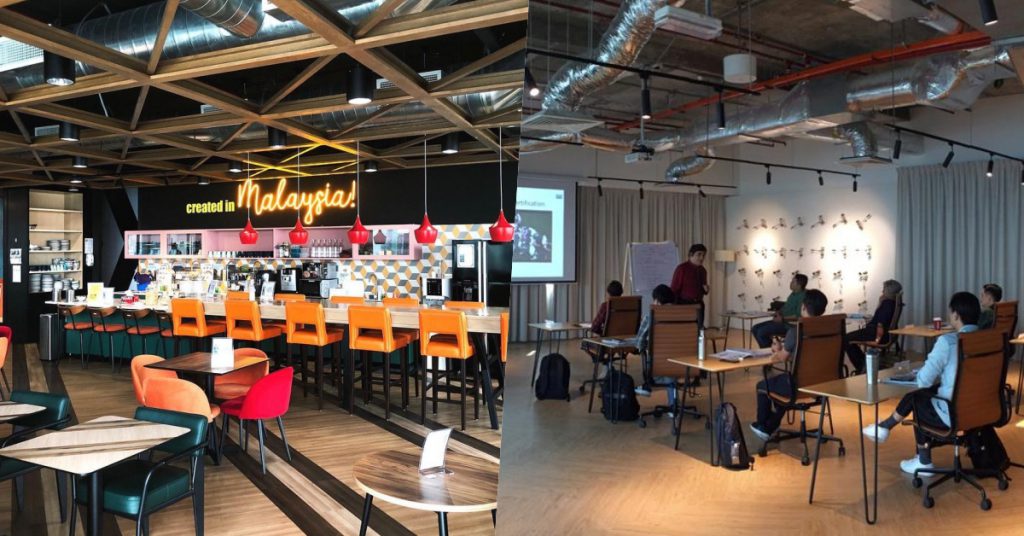
[This is a sponsored article with MDEC.]
Coworking spaces have become the hotbeds for tech innovation and a launchpad for many budding startups.
Given the increase in demand for more flexible and customisable workplace options during the pandemic, this vertical faces stiff competition to offer the right support or to meet the needs of their customers.
As a result, coworking spaces must also evolve, and they play an important role as ecosystem enablers to propel the growth of tech companies.
To assist the coworking spaces to further foster tech innovation, the Malaysia Digital Economy Corporation (MDEC), launched the Malaysia Digital Hub (MDH) initiative back in 2017 to transform coworking spaces.
Since its inception, MDEC has recognised and certified 20 coworking spaces as MDHs, serving almost 600 businesses locally, fostering innovation and collaboration. The current certified MDHs in Malaysia are Sunway iLabs, Common Ground, Dojo KL, Selangor Digital Creative Centre (SDCC), WORQ, Found8 and UnionSPACE.
More Than Just A Space
A Malaysia Digital Hub offers startups the opportunity for global expansion via instant access to high-speed broadband and fibre optic connectivity, opportunities to funding and facilitation, and a technologically-focused ecosystem that is workforce-ready.
While a MDH encourages participation from all forms of tech startups, it focuses mainly on four categories: To supercharge tech startups through growth programmes and initiatives as well as providing access to talent builders and investors.
But before a coworking space can be recognised as a MDH under MDEC, they will have to fulfil these criteria.
Requirements:
- Equipped with high-speed broadband,
- Fostering a community of startups in their space,
- Connected to key tech anchors in the internet economy that has regional/global presence,
- Partnered with a talent builder and have a coaching/mentoring network,
- Providing funding facilitation opportunities to startups,
- Have a modern and accessible amenity for startups to meet and network.
These standards were established by MDEC to ensure essential support is within the reach of startups in the hubs to speed up their development.
“The Malaysia Digital Hub initiative was inspired by the ecosystem that exists in Silicon Valley. While we understand that we might not be able to recreate the Silicon Valley, we can recreate the thinking behind it, and bring in the pivotal elements that make the ecosystem so vibrant and effective,”
Gopi Ganesalingam, Vice President of MDEC’s Global Growth Acceleration Division
To better capture how this support translates into real-life applications, we spoke to some of the MDH members to get better insights on how they can benefit startups.
A Landing Pad For Global Talents
Malaysia is primed to be a hub for top tech talents. Through MDH, startups from foreign countries could also look to position themselves in the Malaysian market through the Malaysia Tech Entrepreneur Pass (MTEP) programme.
With the combination of MTEP and MDH, Malaysia can be your home to propel your tech startup into global limelight with Malaysia as your base of operations.
Through MTEP, the founders can capture the ASEAN market from Malaysia through a 1-year stay or a 5-year stay in the country. And through MDH, the hubs can help unlock opportunities and incentives for the tech entrepreneurs.

Dewan Ng, the Founder of Dojo KL, said programs like MTEP have been highly beneficial to the startups. “With contact to MDEC, it’s good for startups to build in Malaysia. The MTEP program speeds up the visa process and it makes the process clear and easy for companies to get their visa.”
Easy Access And Connection To Funding Partners
Getting funding is often an exhausting process for the startups involved, especially if you have no in-roads. It’s even tougher now because of the outbreak. Startups are unable to network and meet with potential investors like they used to.
Through the certified MDHs, MDEC ensures that the coworking spaces are connected to a funding partner, and this helps facilitate the startup’s call for investment.
For example, VentureGrab, a business-matching platform credited MDEC’s MDH and SITEC for their success. Earlier in the year, VentureGrab successfully raised RM500,000 through the MyStartr platform, an equity crowdfunding platform in partnership with SITEC and MDH.

JomRun, an app for people aspiring to live an active lifestyle also credited MDH and Sunway iLabs in their growth. Through Sunway iLabs’ Accelerator Programme, JomRun emerged as one of the finalists which brought home RM25,000 cash prize.
They were also connected to one of their funding partners, NEXEA Angels, during the process.
JomRun’s founder, Chang Yi Hern said: “This investment was the stimulant we needed to propel our business to enter other Southeast Asian markets and become the biggest sports portal in Malaysia.”
Connecting Malaysia’s Startup Community
During the Malaysia Tech Month, if you managed to catch JF Gauthier’s presentation, he emphasised on the increasing connected-ness among startups as a key component in creating global startups.
Bridging the gap between startups is a key element that MDH specialises in.
Mecapan, a startup which was founded in Indonesia, set foot in Malaysia 2 years ago after receiving their MTEP. Since then, Mecapan has decided to make Malaysia its engineering hub, and they’re now operating from WORQ.

“WORQ has provided a great community for founders to interact & discuss, whether it be from serendipitous encounters or their ‘bonfire’ sessions. This has been helpful for us to learn from others’ analysis, critiques, and suggestions,” said Adrian Wisaksana, the CTO of Mecapan.
If we’re talking about sheer reach in SEA however, not many coworking spaces can stand toe-to-toe with Common Ground. Debra, the Marketing Executive for Common Ground said that they house over 7,000 members throughout their 22 spaces in Malaysia, Thailand and the Philippines.

An MDH needs to be able to play on their own unique strengths and offer up-and-coming tech startups attractive offers.
In a recent report by Startup Genome, Kuala Lumpur is recognised as the 11th emerging startup ecosystem in the world, and that means Malaysia is going in the right direction in fostering startups.
It doesn’t matter if you’re a local startup or a foreign SME looking to venture and integrate into Malaysia’s ever-expanding digital ecosystem, these MDHs will give you the support and boost to ensure that your business is well-equipped for success.
Malaysia is moving towards Malaysia 5.0, a more human-centric approach, and becoming the ‘Heart of Digital ASEAN’. MDEC’s role in this is to empower Malaysians with digital skills, enable digitally-powered businesses, and drive digital investments.
Also Read: Microsoft Wants To Assist Local Independent Software Vendors, Here’s What You Need To Know
Featured Image Credit: WORQ, Common Ground
MDEC’s Founders Grindstone Connects 10 M’sian Startups To The World’s Largest Network of VCs
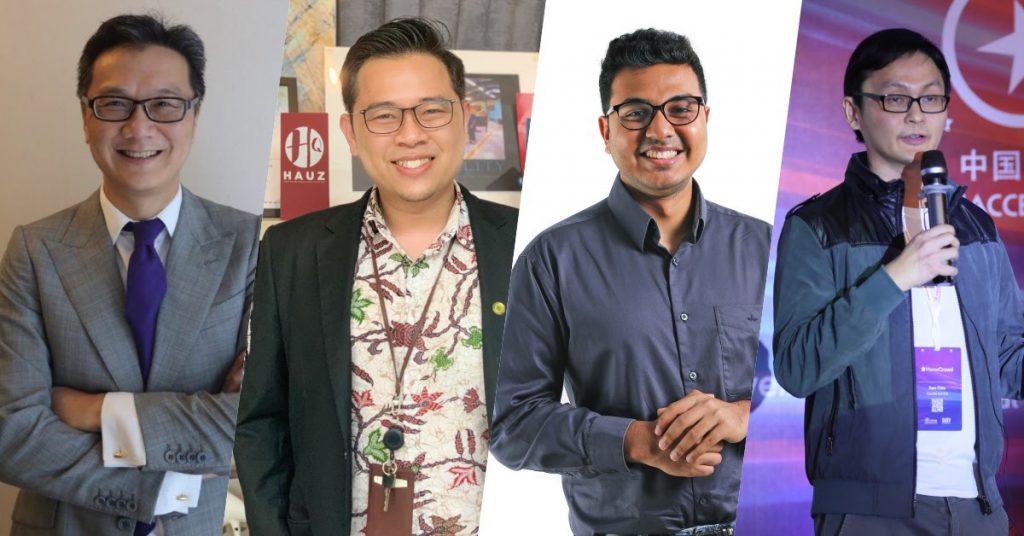
[This is a sponsored article with MDEC.]
Fundraising is a key aspect for many startups to accelerate their growth efforts.
However, pitching for funding isn’t a walk in a park. Despite having good fundamentals or even if they are profitable, clinching the much-needed boost for their business sometimes seems to elude them.
It also boils down to the entrepreneurs not understanding what the venture capital (VC) or funding platform wants to hear during the pitch.
The Malaysia Digital Economy Corporation’s (MDEC) Founders Grindstone programme aims to fix that issue.
By providing first-hand coaching through intensive workshops conducted by professional partners, investors, venture capital, equity crowdfunding platforms and legal firms—MDEC intends to equip Malaysian startups with the knowledge and know-how that will assist them to successfully navigate their fund-raising journey.
“Through our engagement with the participating companies, we believe that Malaysia has the potential to produce impactful global startups that will shape the future of ASEAN. As a business which seeks to enable one million entrepreneurs by 2030, we at Draper Startup House are proud to partner with MDEC for this imperative initiative and assist in elevating the Malaysian tech scene, locally and globally.”
Nick Martin of Draper Startup House
Robin Lee, the founder of HelloGold shared, “The workshop (Founders Grindstone) was good regardless of what stage your startup is at. For those at the same stage as us, it was a great way to re-test/kick the tyres on what we have done to date. The practical advice offered were helpful affirmations of what we have done so far.”
We had the opportunity to speak with Robin and others participants who actually went through the first batch of workshops.
1. Widening Your Investor Network Beyond What You Could Achieve Organically
Out of a group of 20, the top 10 winning pitches of the first batch had the opportunity to be connected to Draper Startup House Ventures (DSH), one part of the world’s largest network of VCs under Draper Venture Network, with connections to 24 global funds.
Understandably, a lot of the founders are excited about this.

Senang Insurance provides on-demand and one-off insurance at an affordable rate to get companies covered when they need it. Throughout the Movement Control Order (MCO) and beyond, they’ve been fairly active.
They’ve launched new products such as insurance for travel companies, to prevent heavy loss of business due to COVID-19.
Sharian Raj, Senang’s co-founder, told us, “The VC network in Malaysia is limited for early stage startups that are looking to raise post seed funding. With DSH, we are excited to extend our reach.”
Dave Chew of HomeCrowd, a crowdlending platform that connects homebuyers with potential investors, had a similar observation and shared, “It’s good that we can have more access to global VCs via Draper’s Network.”
“I am looking forward to establishing bold relationships with potential investors from the network and eventually, (get into the) closing of funding rounds,” said Wai Yan Htun, the co-founder of Vechnology.
As part of their future growth, Vechnology wants to bring their improved vending machine technology to the broader market in the APAC region.

2. Learning Or Brushing Up On Your Basics For Pitching
Basics matter, and Di-Yan Ho the founder of HAUZ, a remote management portal that aims to simplify a company’s timesheet and scheduling for increased productivity, deep-dived into the lessons of creating an effective pitch deck and why persuasive story-telling, backed with facts and stats is necessary.
“First; it has to be straight to the point and second; you need to know your financial facts and projected growth. Third; the importance of showing business traction and validation. And lastly, creating clear problem statements and solutions for investors and readers to understand your business,” said Di-Yan.
Sharon Vaswani, the CEO of PanOphthalmics Enterprise also shared what she learned from Founders Grindstone.
PanOphthalmics Enterprise sources affordable surgical instruments and consumables required by ophthalmologists (a doctor who diagnoses and treats eye diseases).
In the past, she didn’t really see her business as a startup and wondered how helpful Founders Grindstone could even be for her.
“Having gained a pulse of the market and investment mood, I feel that the Founders Grindstone helped elevate my startup’s proficiency in meeting and speaking with investors,” she said. “It was also molding me to become a more competent business woman, confident enough to share my ideas with potential investors and ask for help.”
3. Getting Your Legal Side Right, Before It Becomes A Problem
One component of the workshops was actually about the legalities of the funding process. This was conducted by Izwan & Partners, a local law firm which specialises in startups.
Through this session, the founders gained insight into the statutory requirements of fundraising, venture capital financing, knowing how much to raise and the rate equity that can be given.
Most of the founders appreciated this, especially if they are not from legal backgrounds.
“Now I do have a clearer vision of a good legal structure within the company as well as many great tips and tricks when we deal with external parties,” said Wai Yan, the co-founder of Vechnology.
4. Focusing On The Finer Details That Can Make Or Break Your Pitch
There are times you can make a great impression in your pitch and presentation, but closer scrutiny of your outdated facts and figures could turn off potential investors.
That’s something Manu Menon is keeping close to heart after participating in Founders Grindstone. He highlighted the need to keep his share cap table up-to-date as it is one of the critical takeaways.
His startup Youthtopia, a platform that focuses on improving a child’s fundamental skills to prepare them for the 21st century, has launched a successful closed beta.
So he’s looking to raise funds and accelerate to the next milestone as quickly as possible.

Besides the names we’ve mentioned so far, there were many others who participated. Joining Founders Grindstone is seamless and, in doing so, you’ll be among the ranks of successful businesses, like:
- mytruck.my, one of the largest online marketplaces for new and used trucks, with a database of 7200+ trucks and over 250 truck dealers and supply of commercial vehicles,
- Avana, an end-to-end commerce platform that helps businesses automate their online selling processes,
- mobi, a cashless payment processing platform that serves thousands of businesses.
Why did we list the rest of the 10 winners of the first batch? Simply to show you that no matter the field or industry you’re in, you can still find value in Founders Grindstone.
“Founders Grindstone will up the ante in our post-seed startup landscape. As we focus on scaling digitally-powered business, we are thrilled to draw on the collective experience of Draper Startup House and top-echelon partners to provide stewardship and tactical advice to our tech entrepreneurs. The exchange of such rich knowledge will thrust Malaysian tech entrepreneurs beyond current pastures, ready to earn global recognition.”
Surina Shukri, CEO of MDEC, during the launch in July
If you’re keen on learning more about the startup scene in Malaysia or simply discover why Malaysia is a hotbed of activity for digital sector investments, you can check out the upcoming Malaysia Tech Month 2020.
The event starts from November 10 until November 30. This month-long event will look to curate the very best in tech and digital sectors with seminars and discussions.
- Sign up to join Malaysia Tech Month 2020 here.
- Register for the next batch of workshops here.
- Read more about MDEC here.
Also Read: With Cybercrime On The Rise, Here’s One Way That M’sian Companies Can Keep Their Data Safe
Featured Image Credit: HelloGold, HAUZ, Vechnology, HomeCrowd




